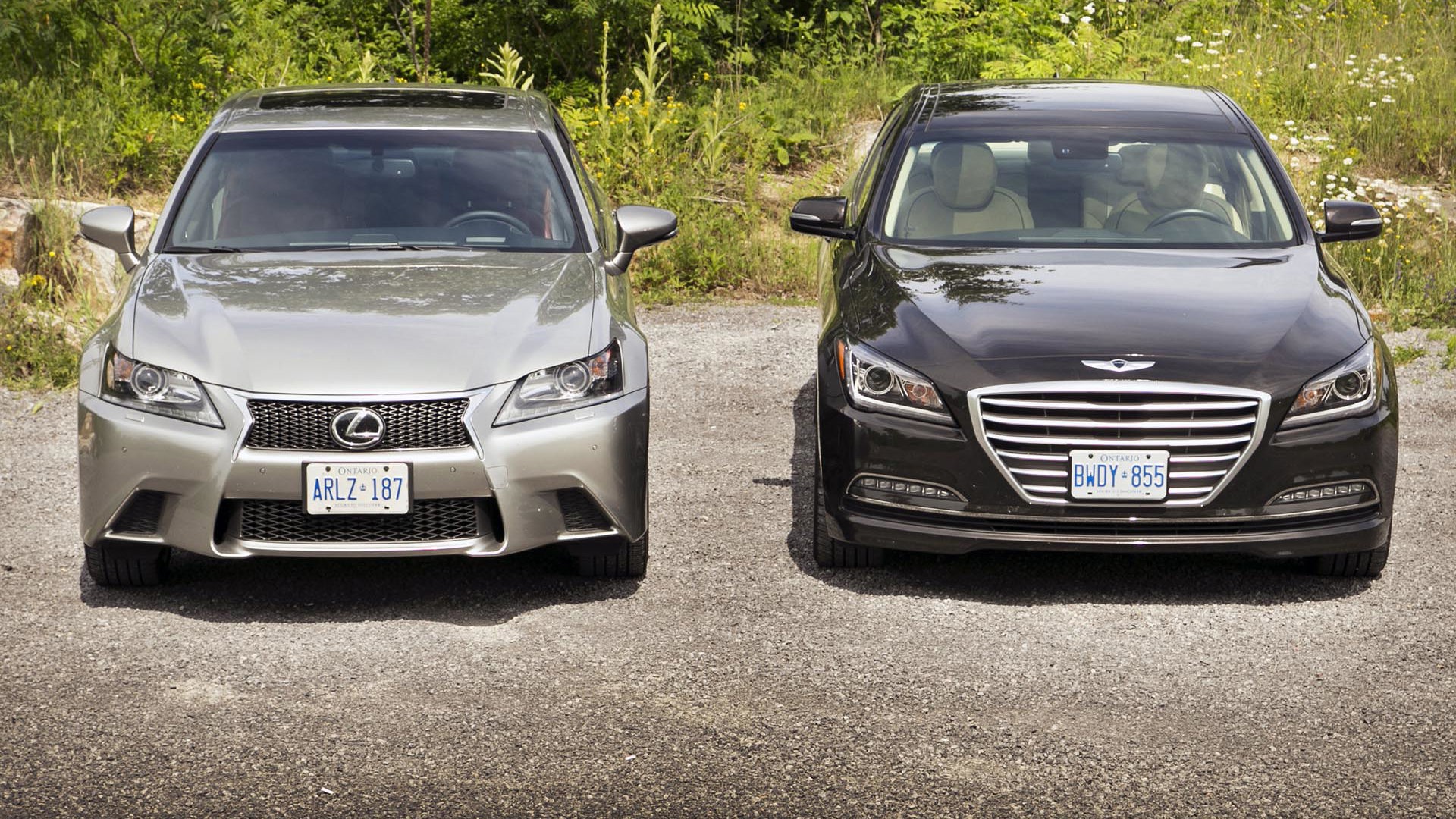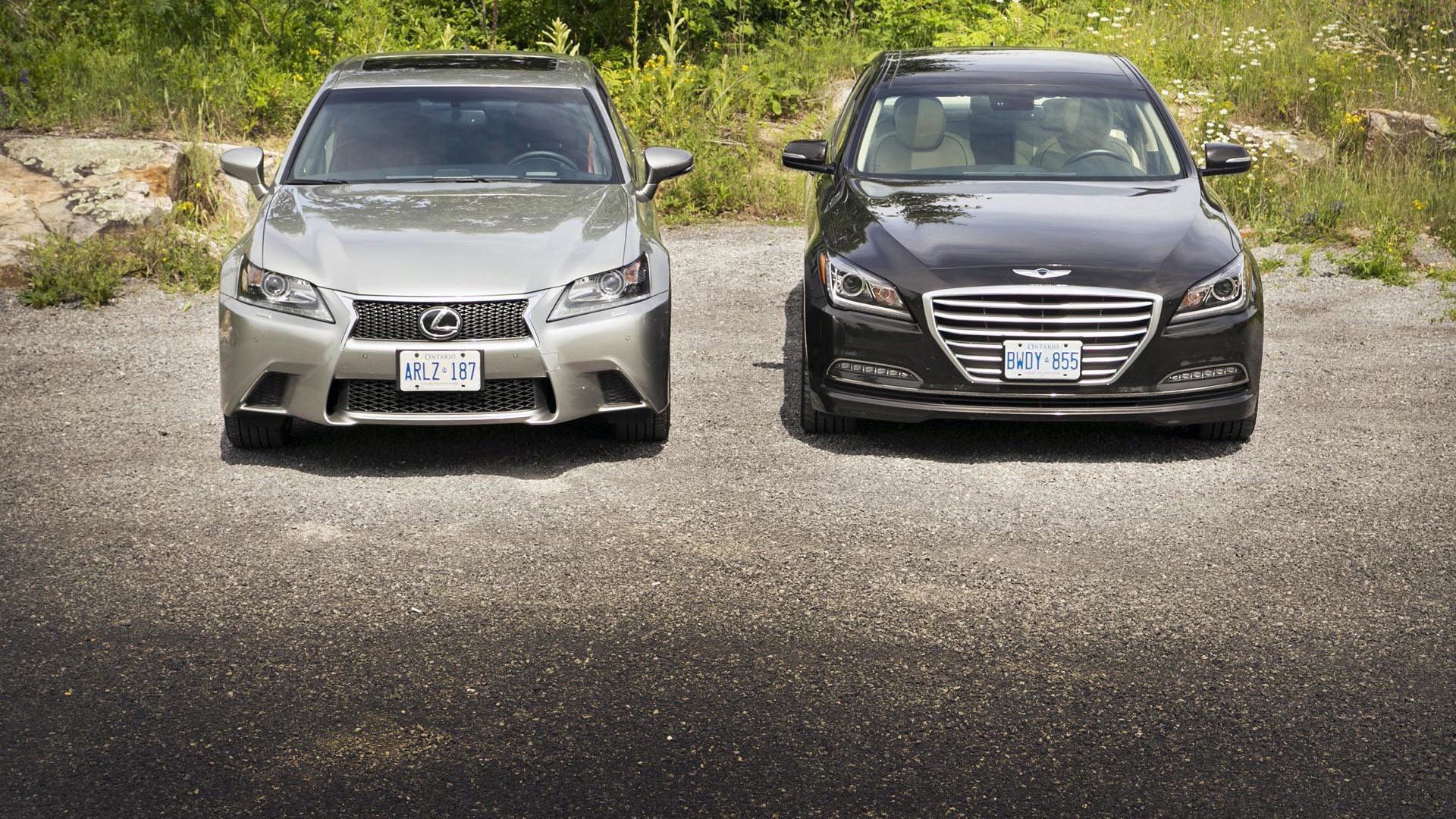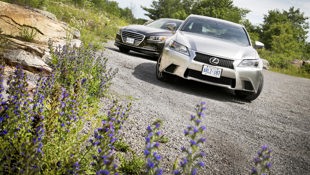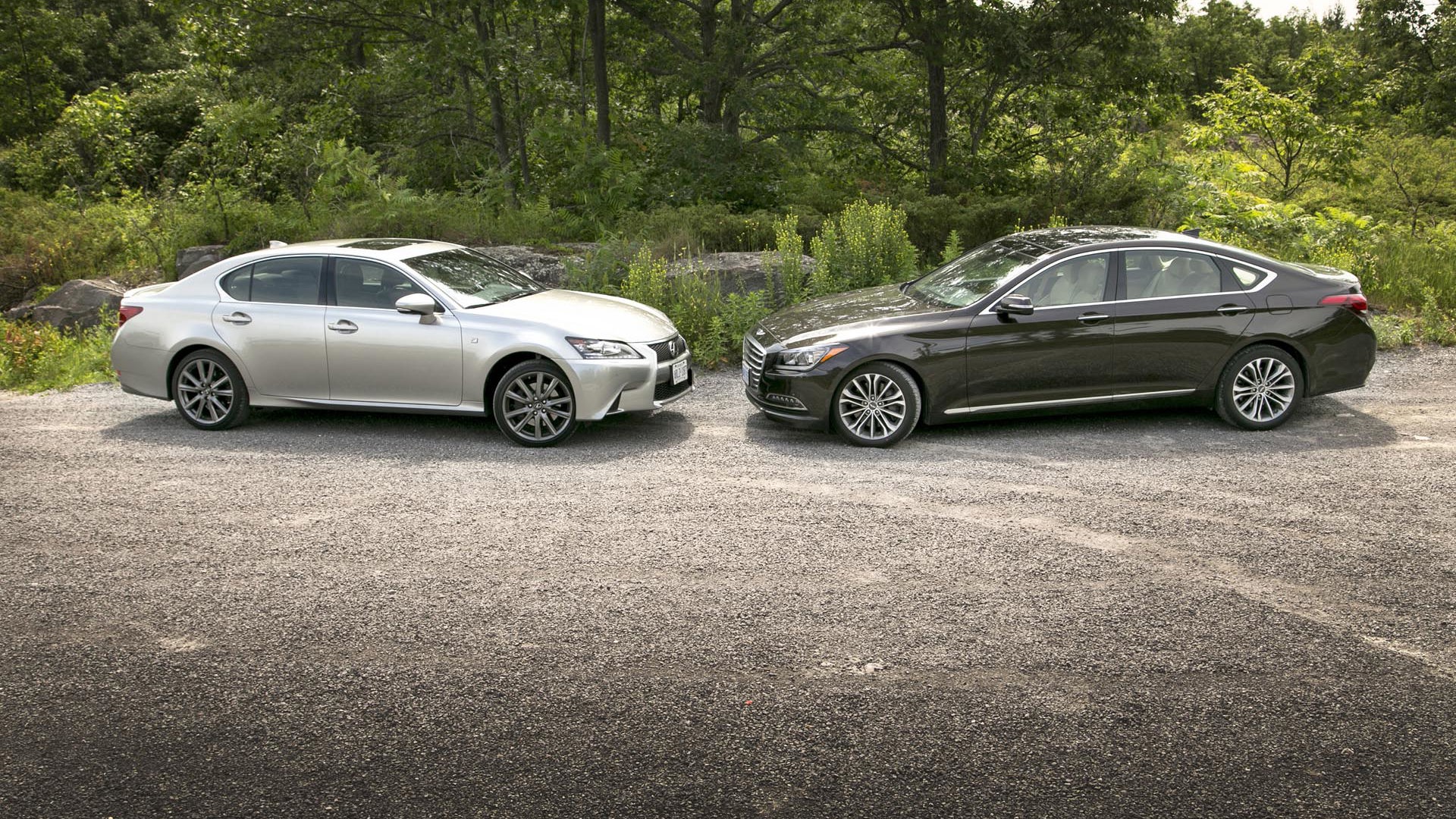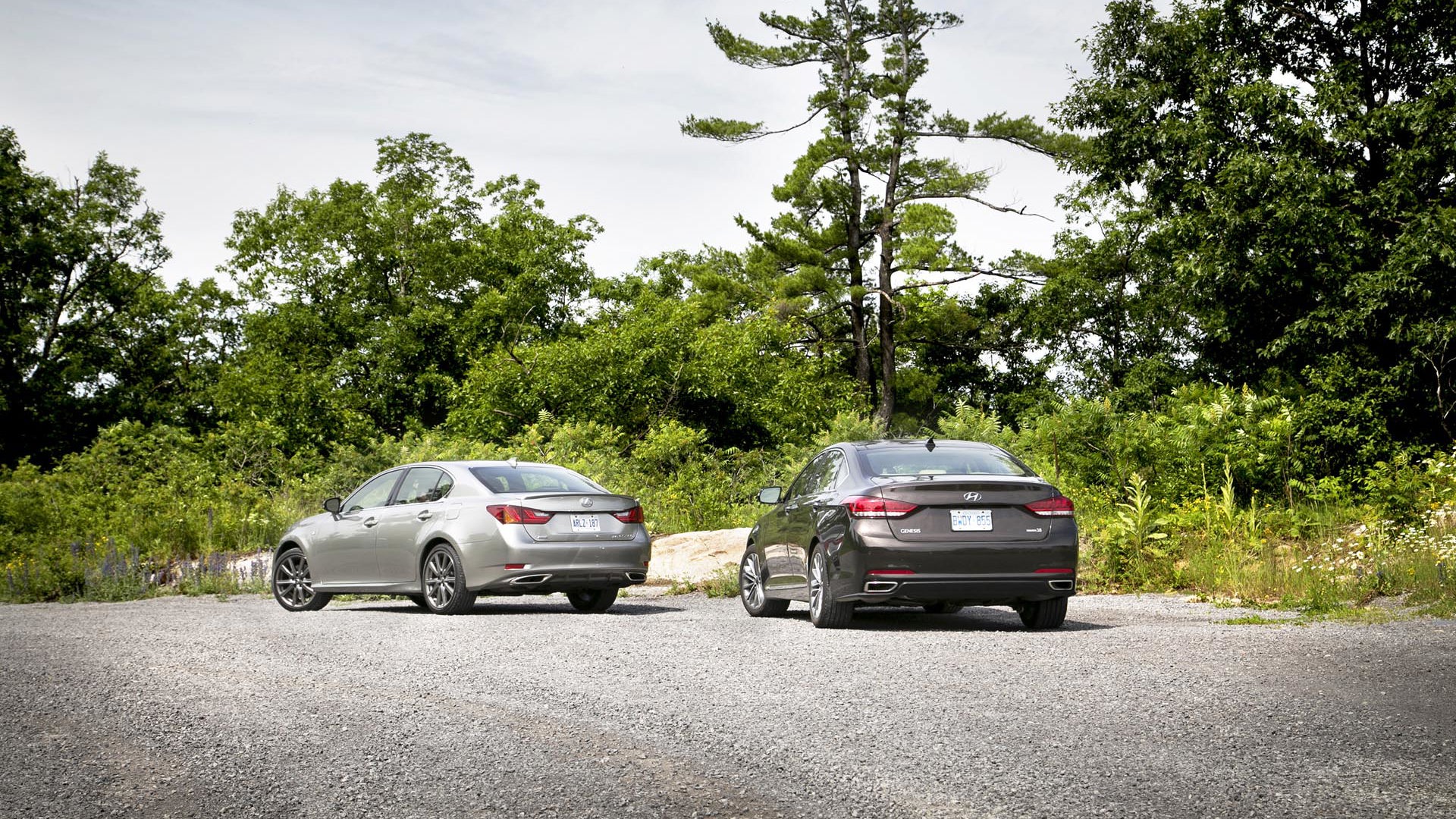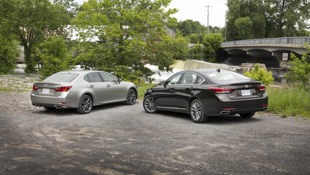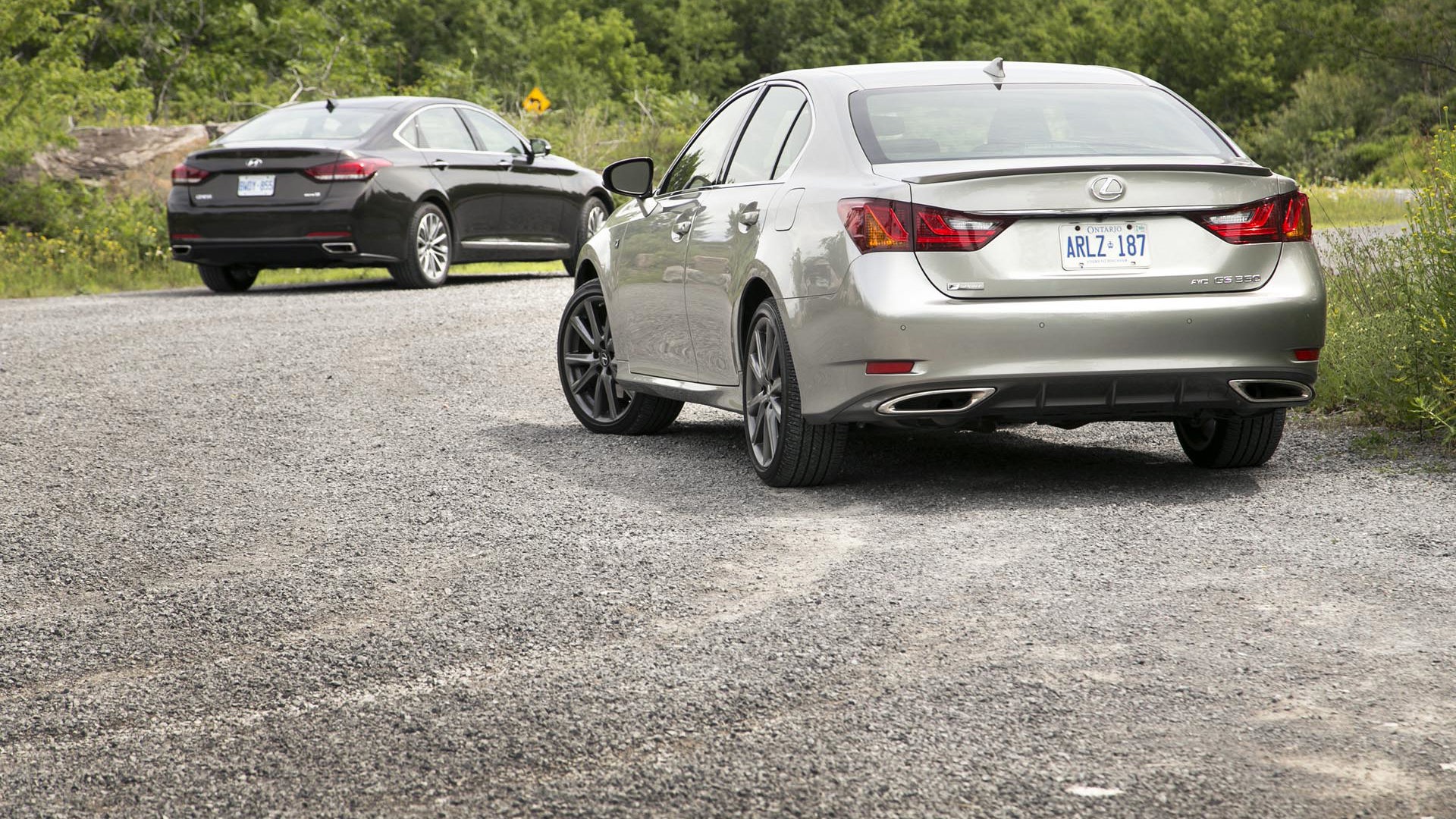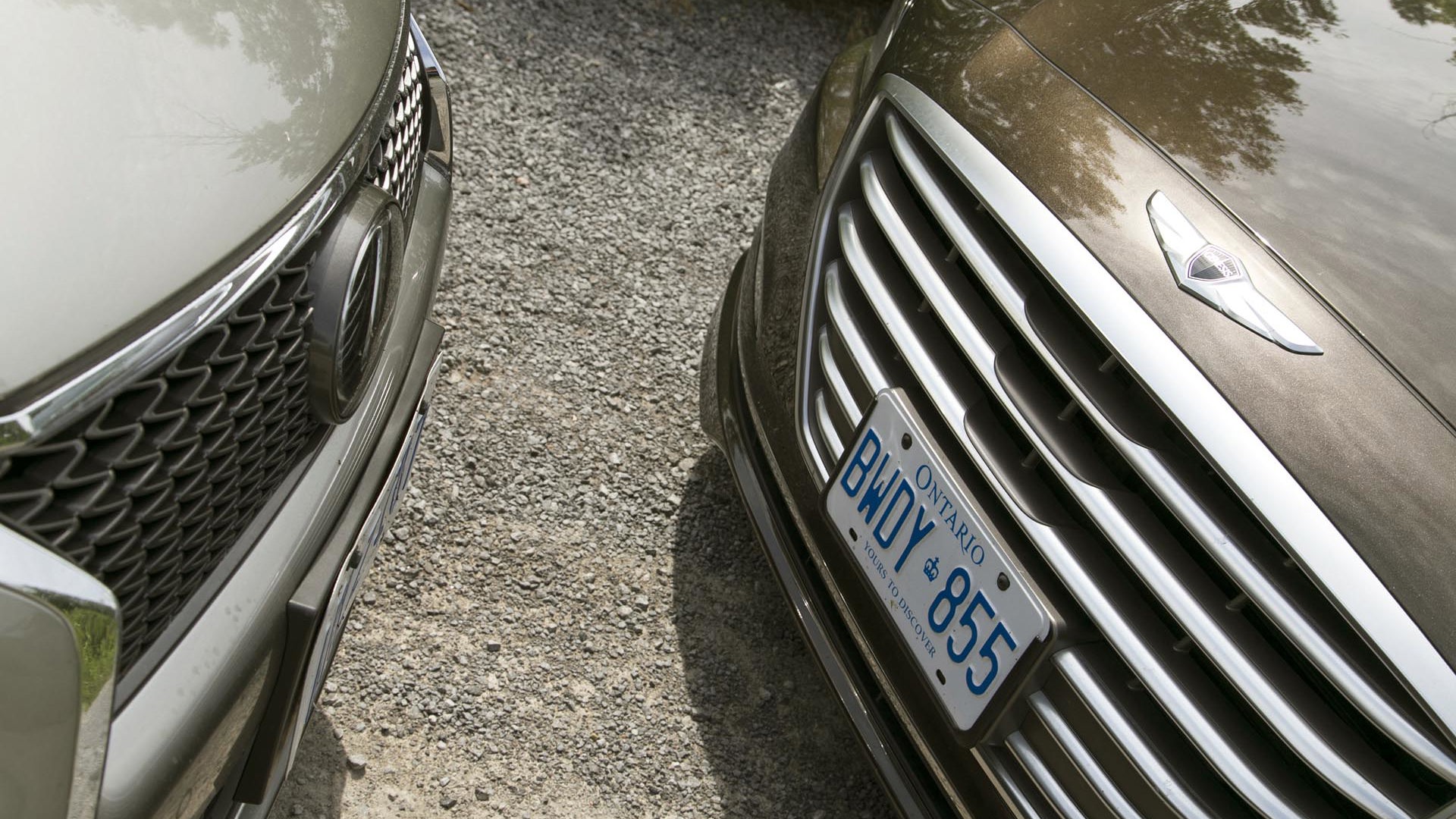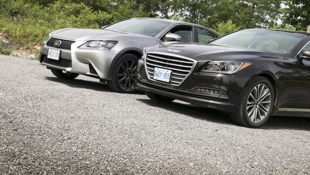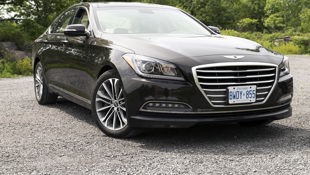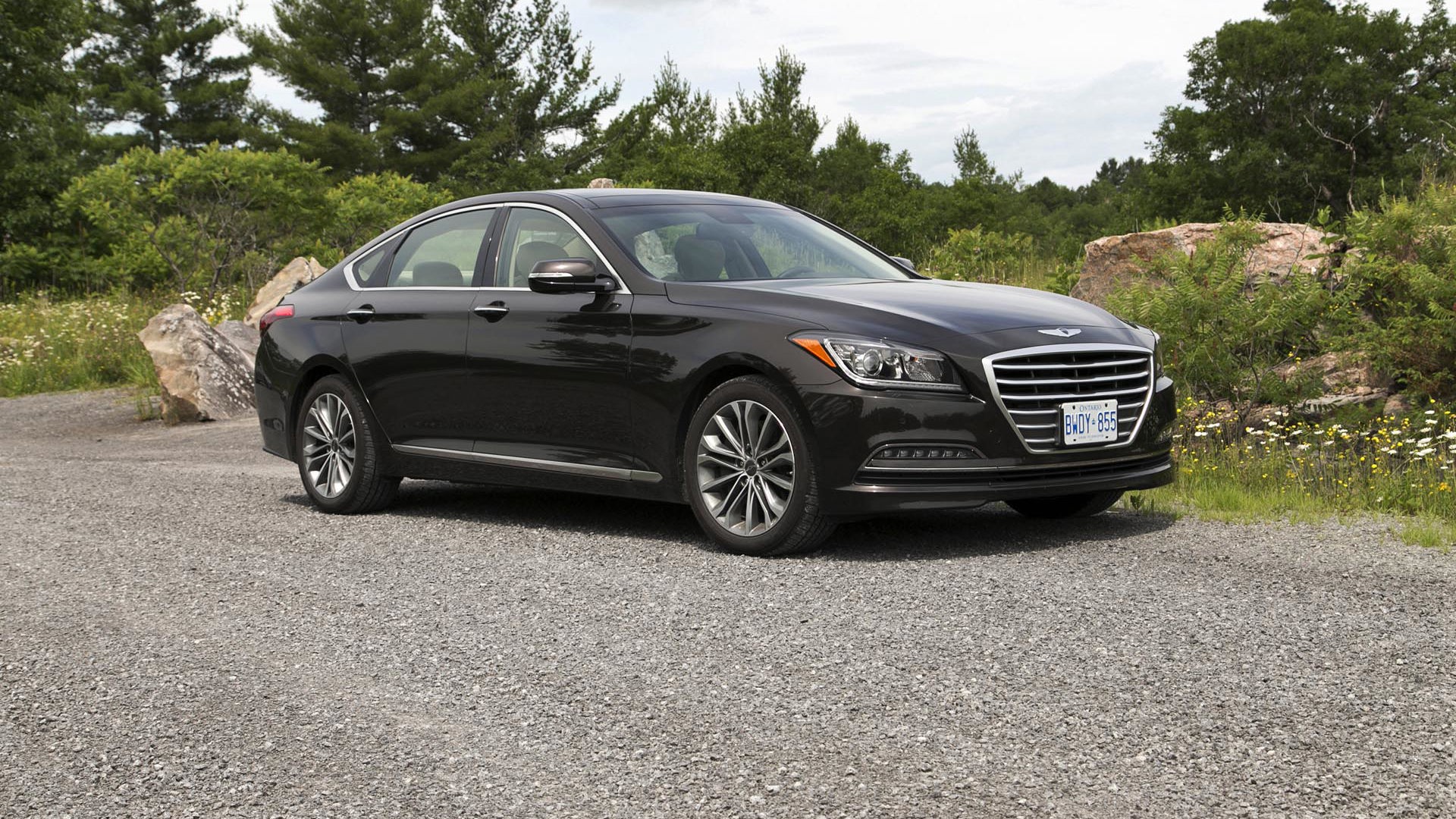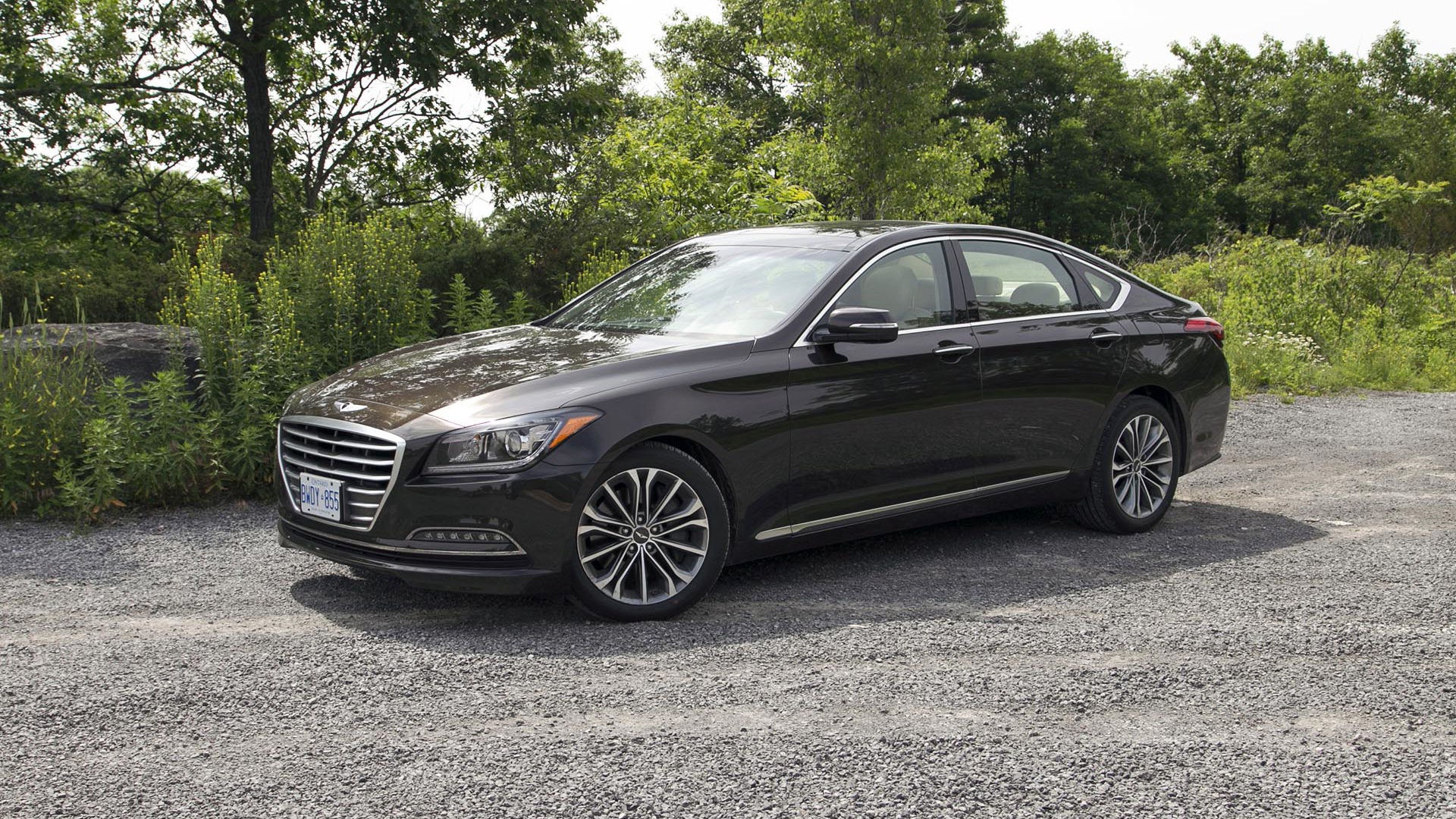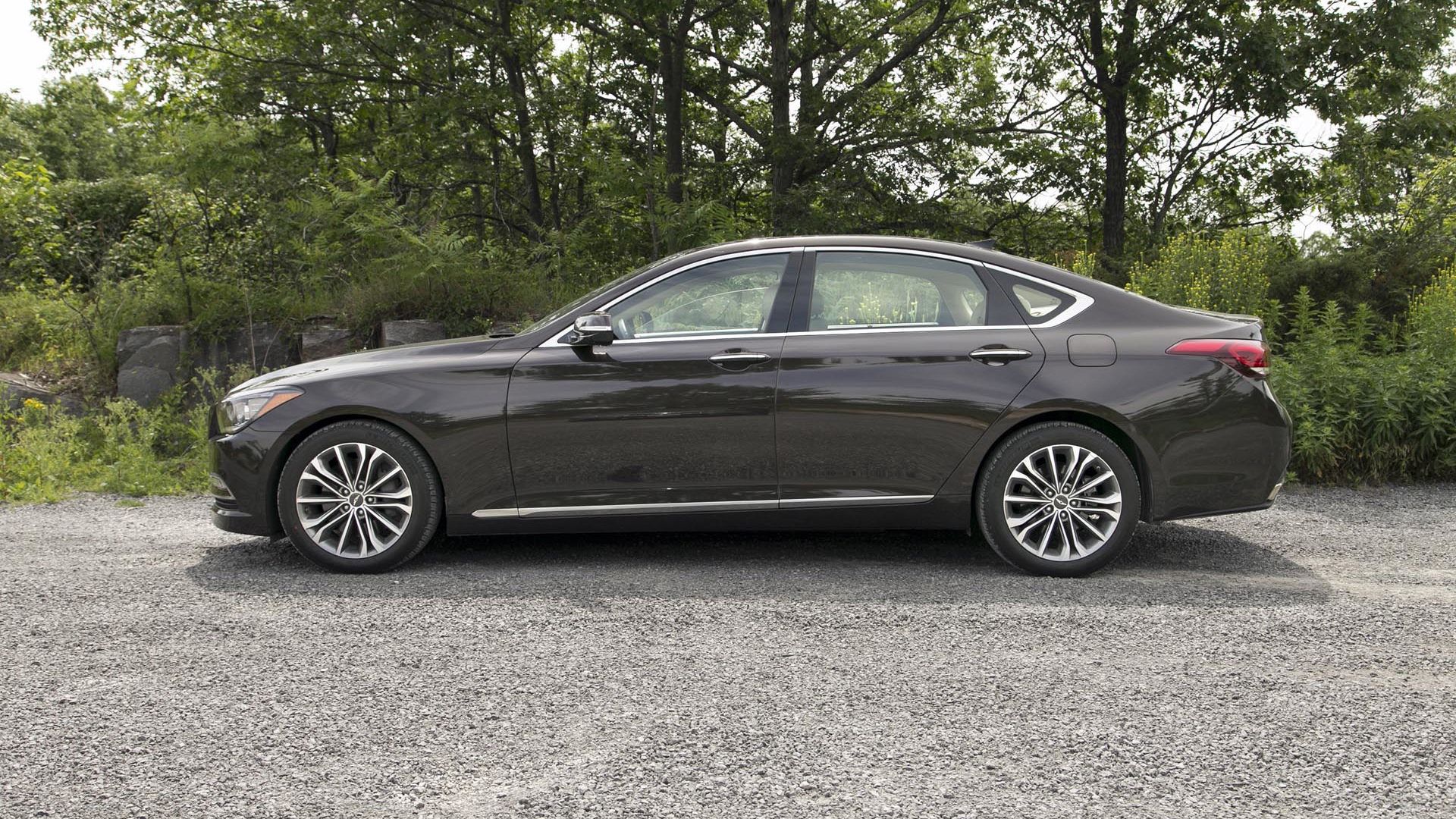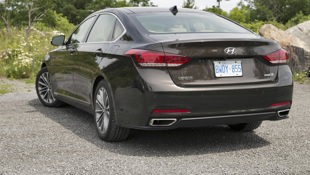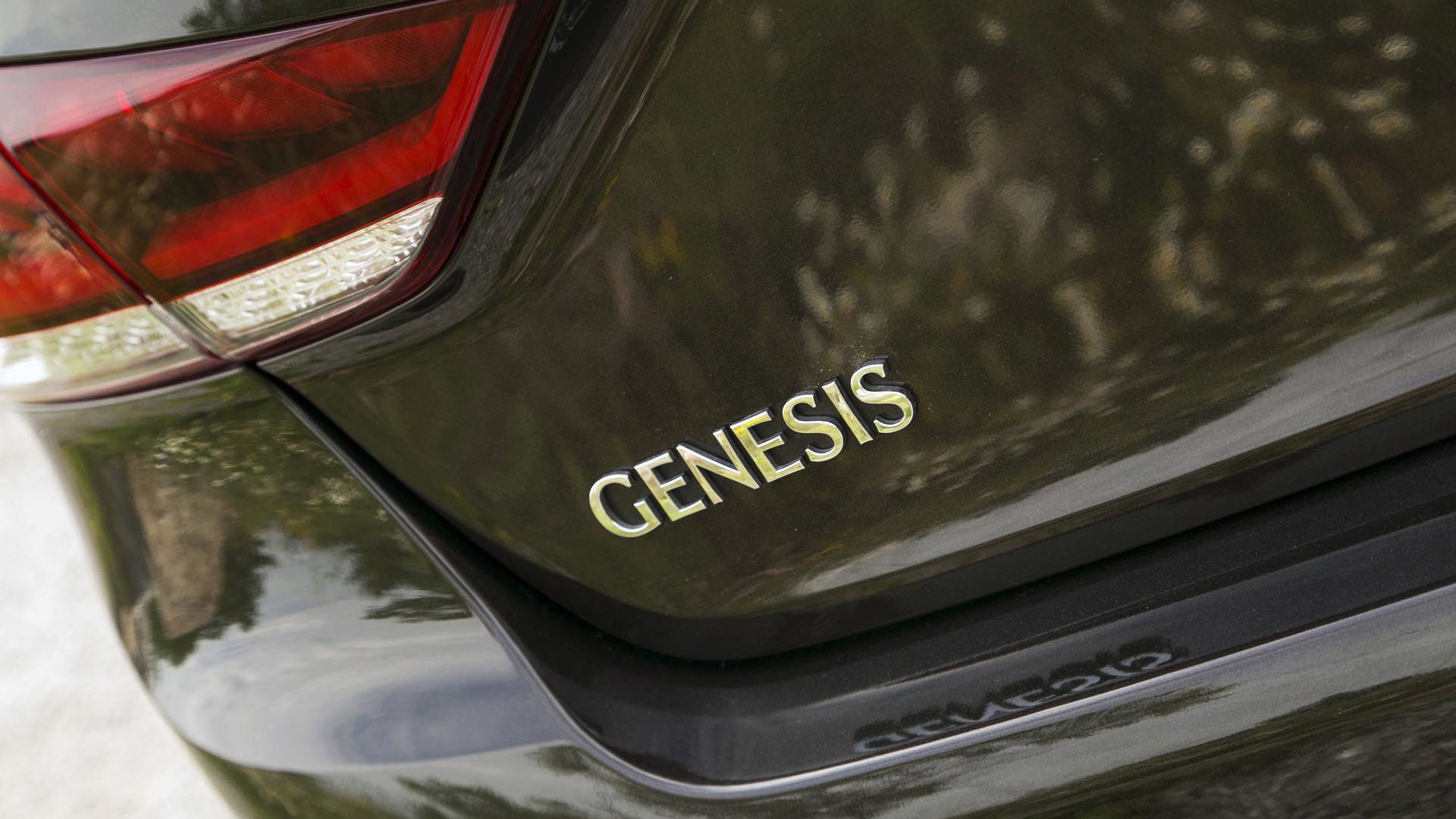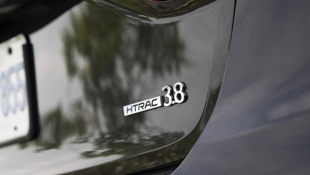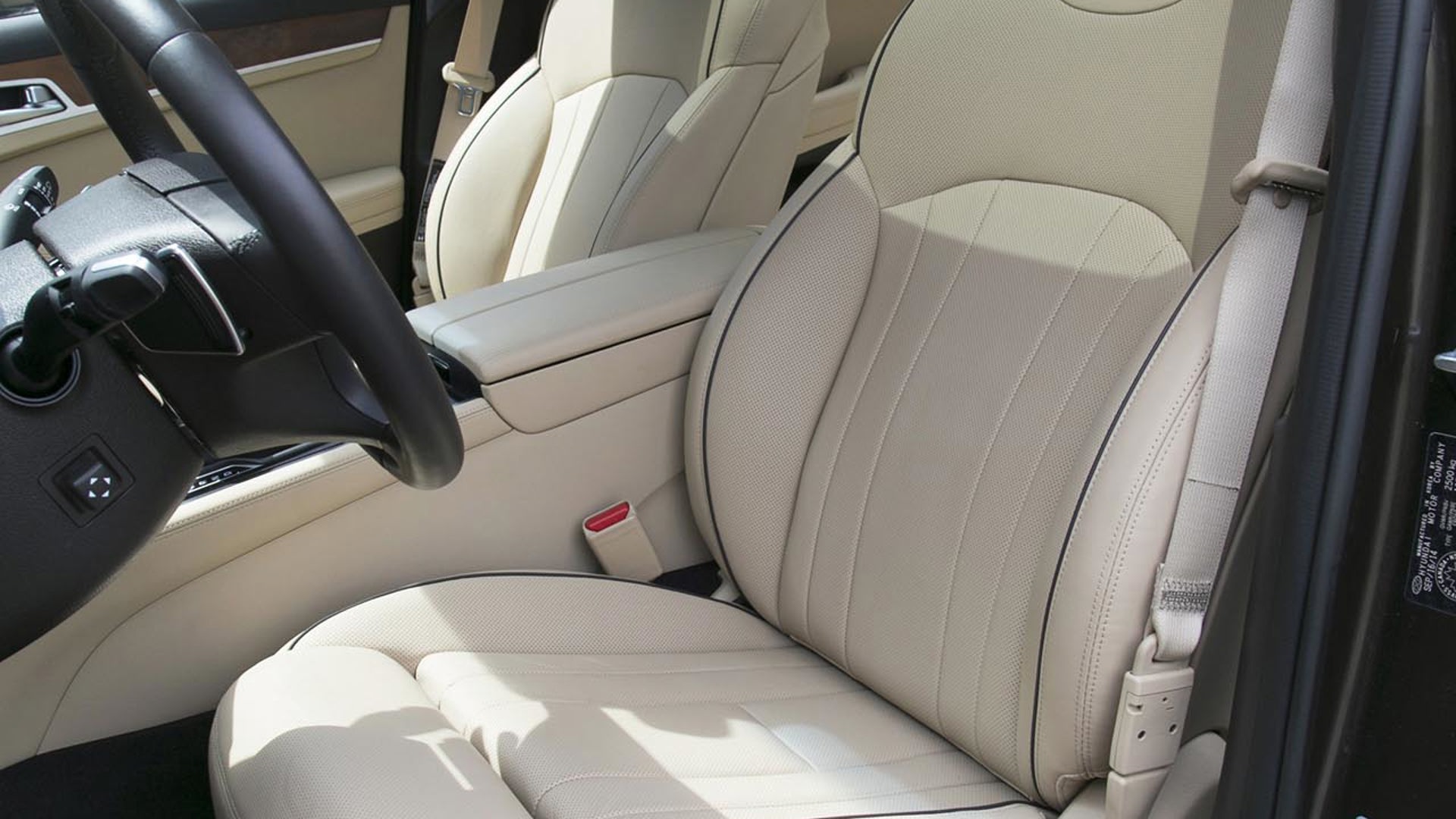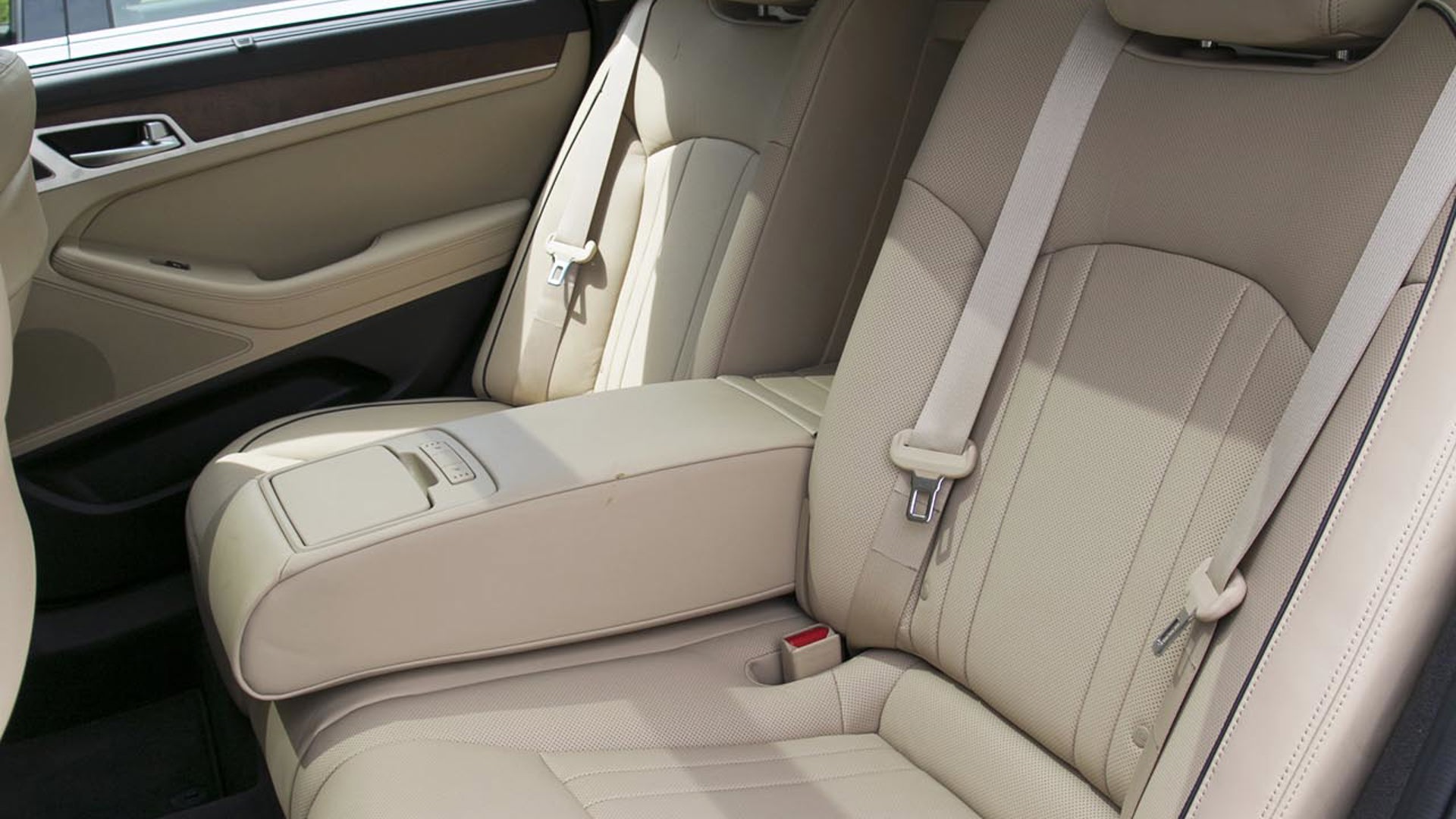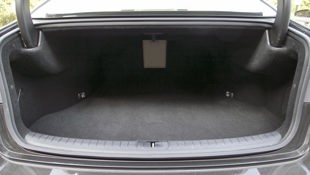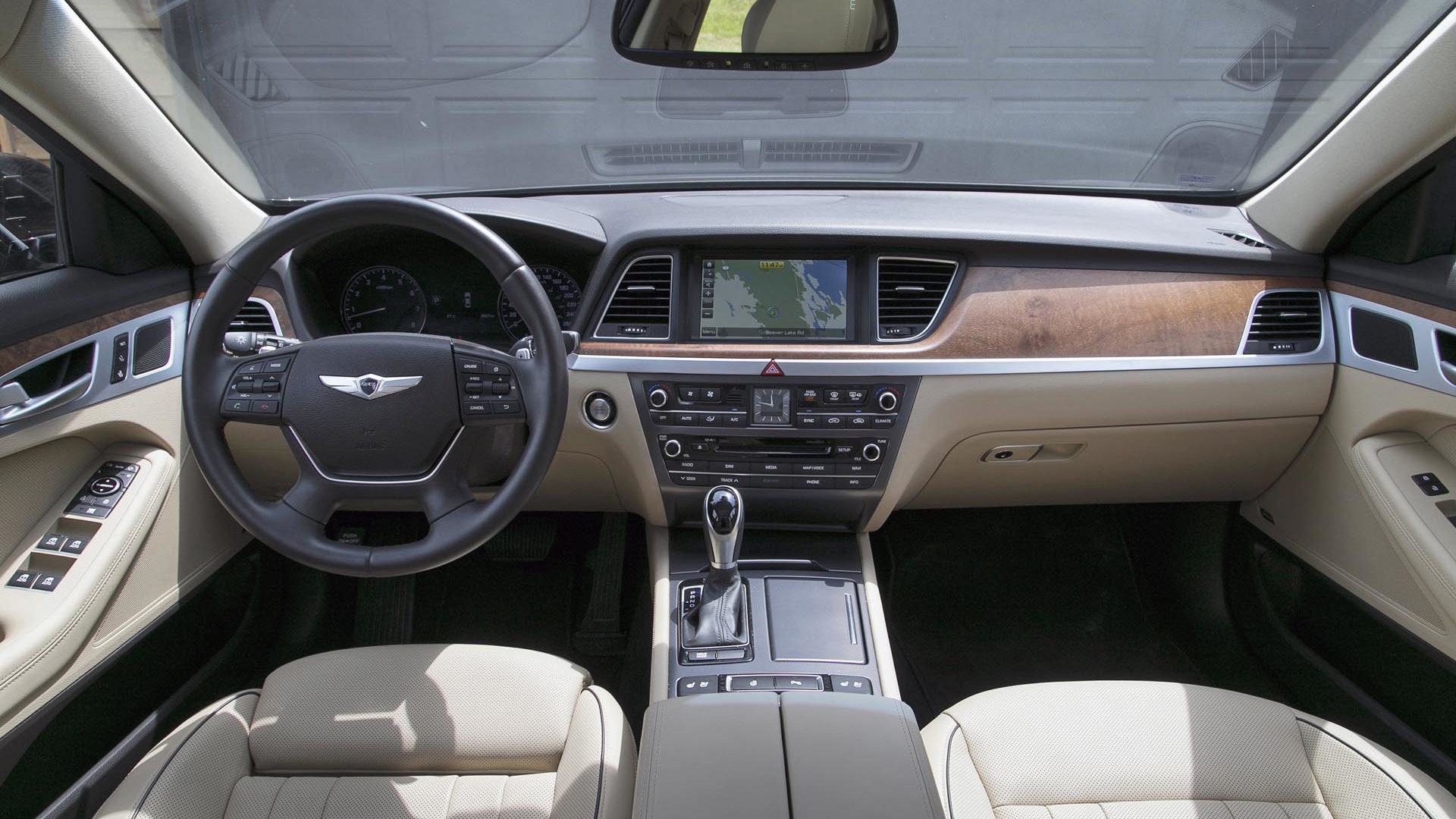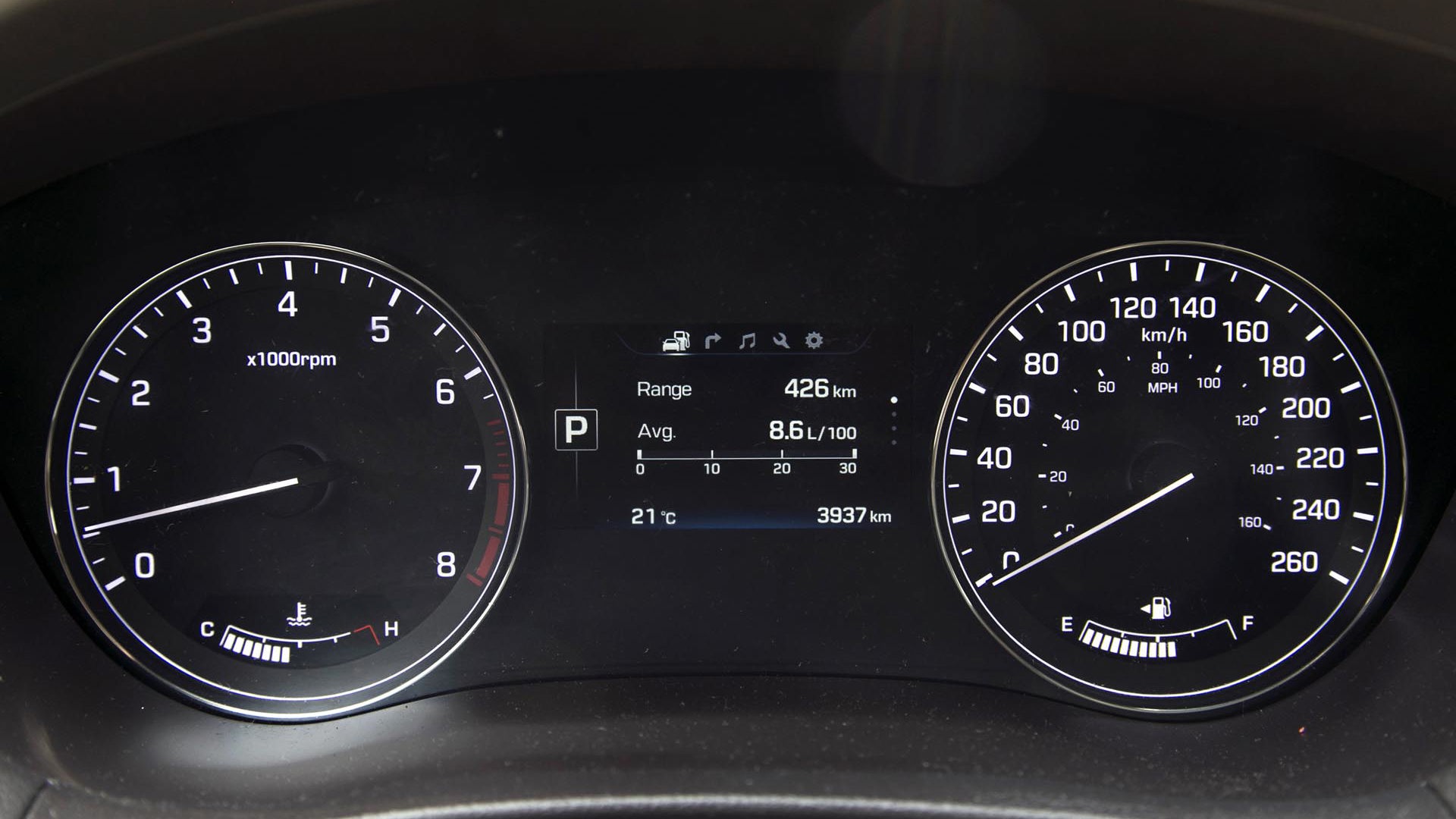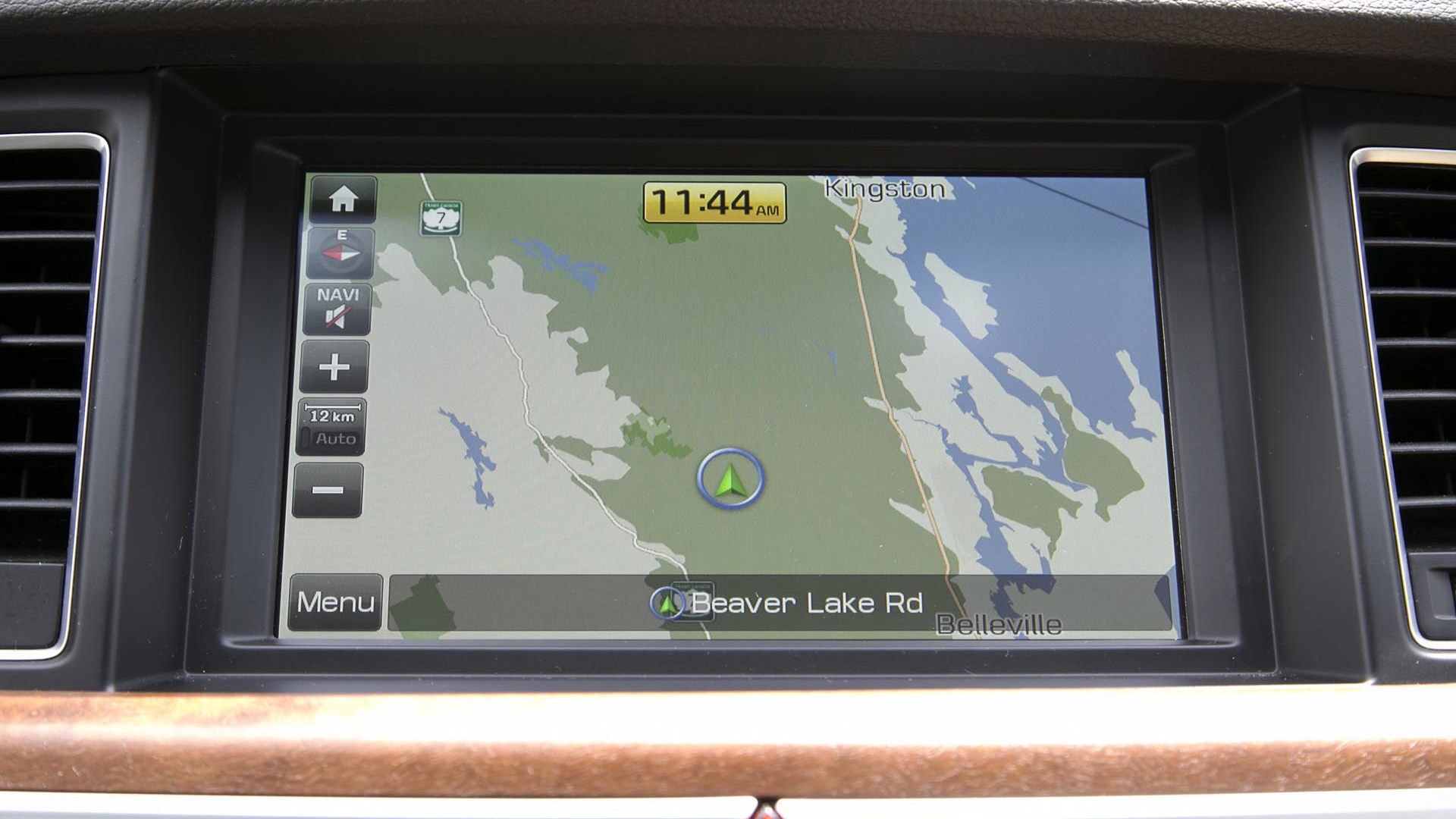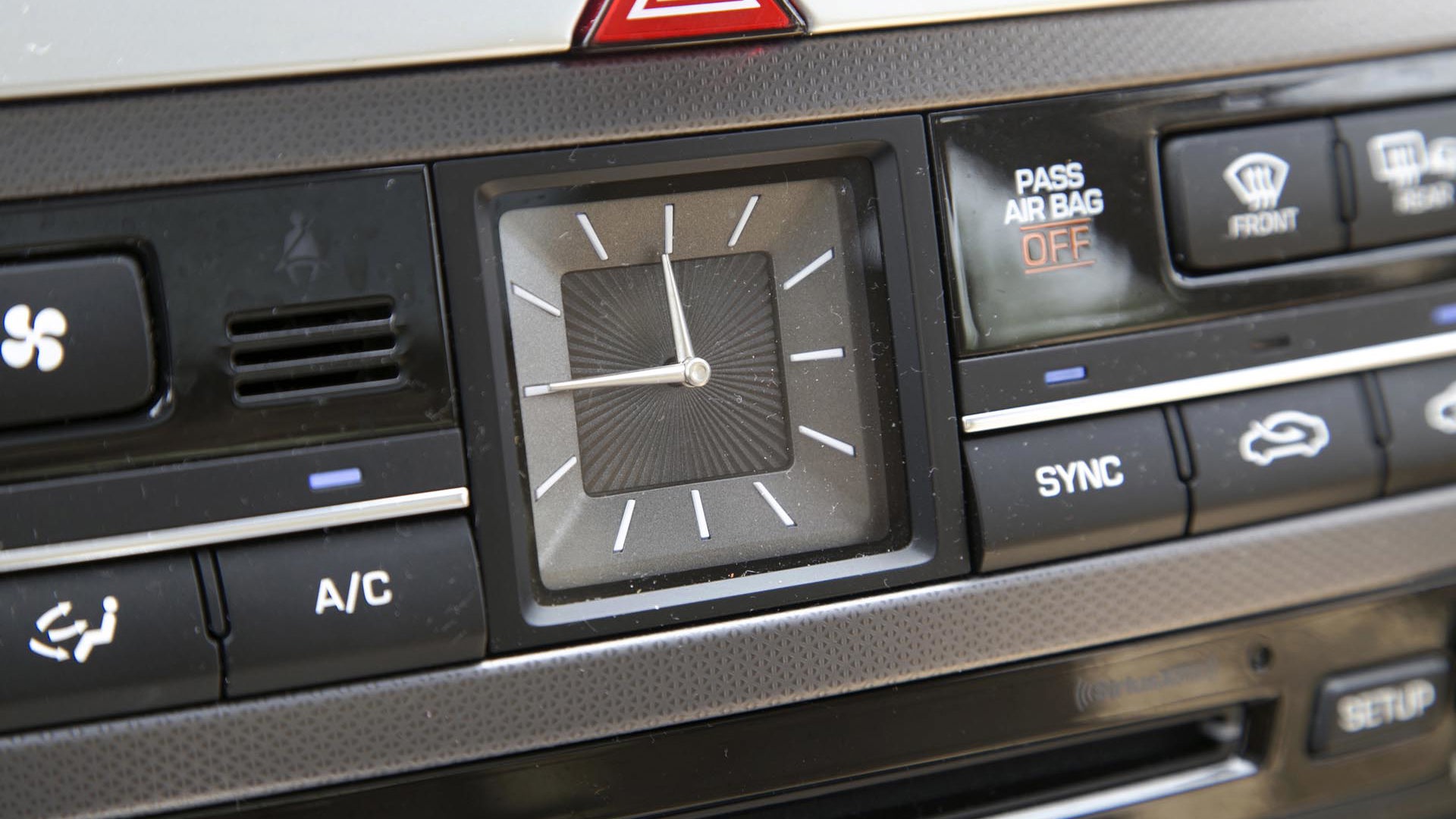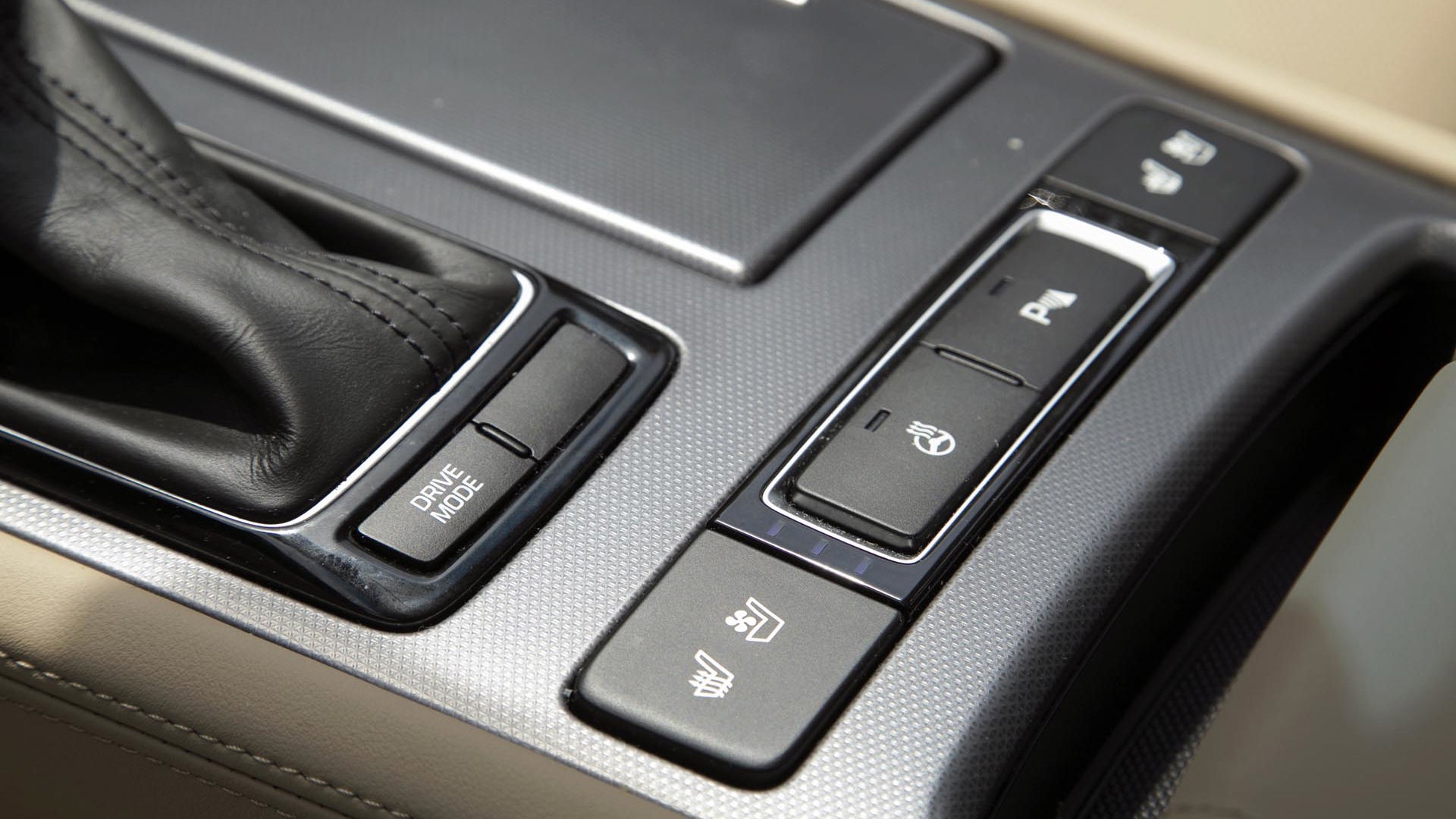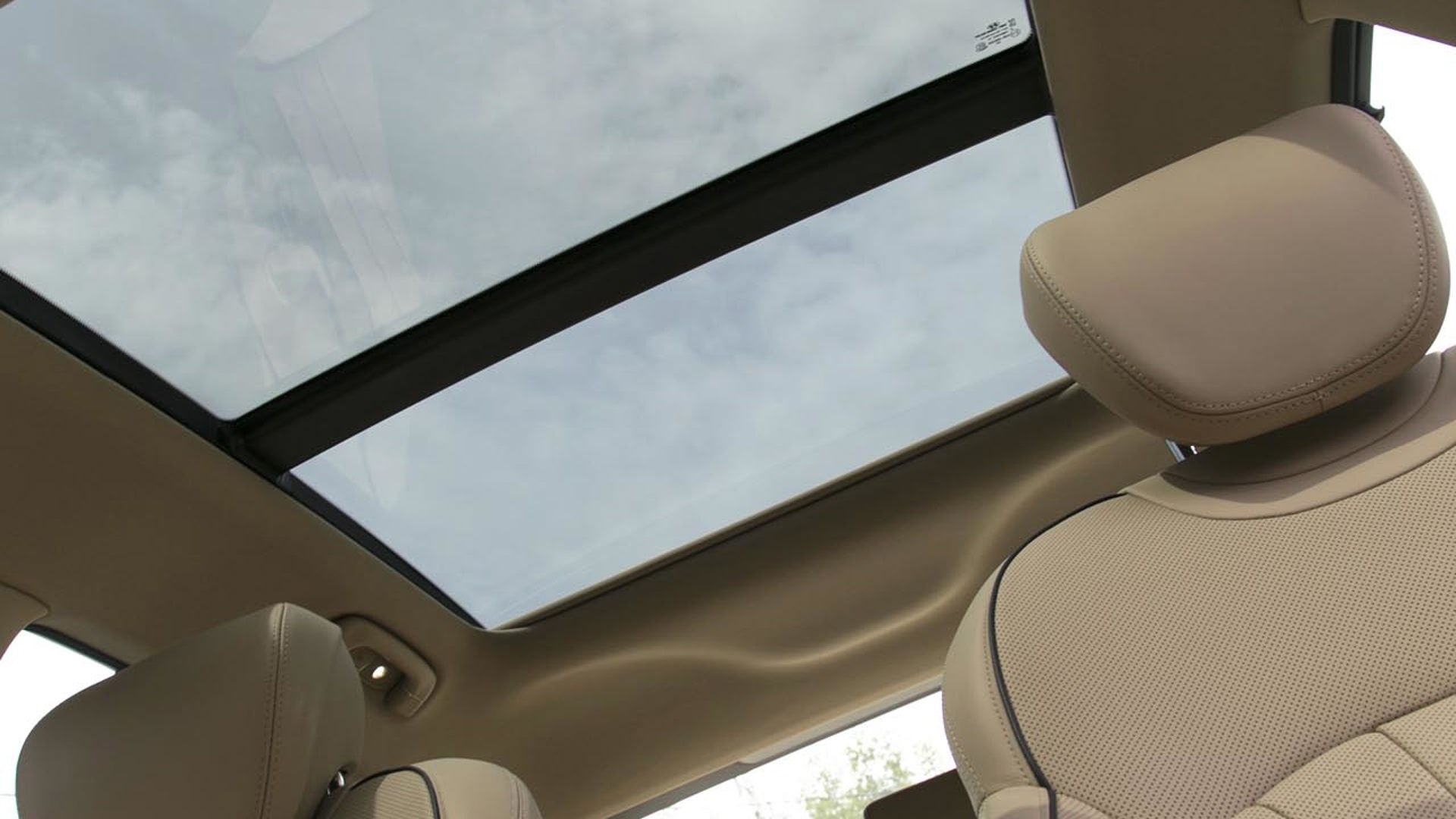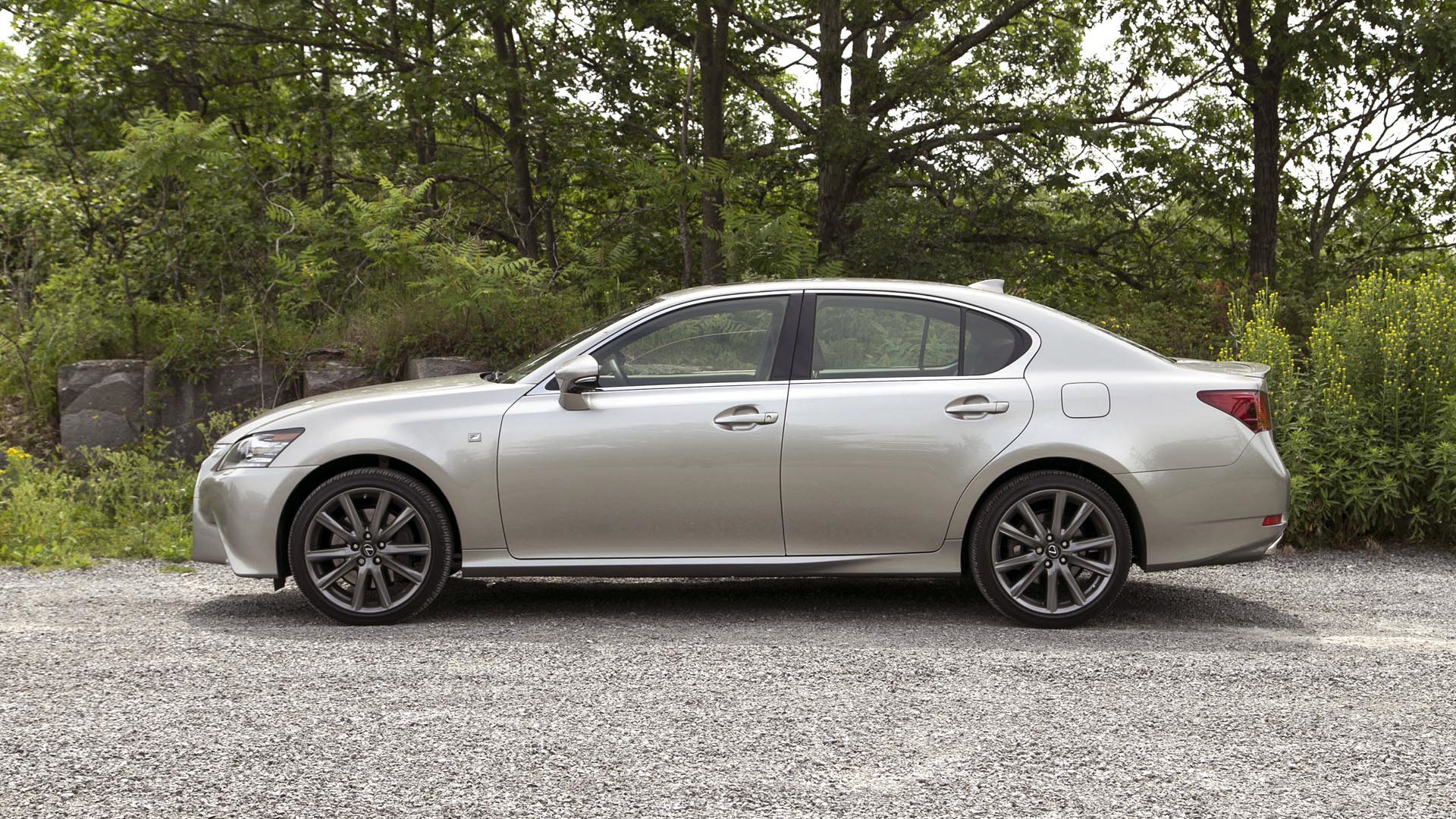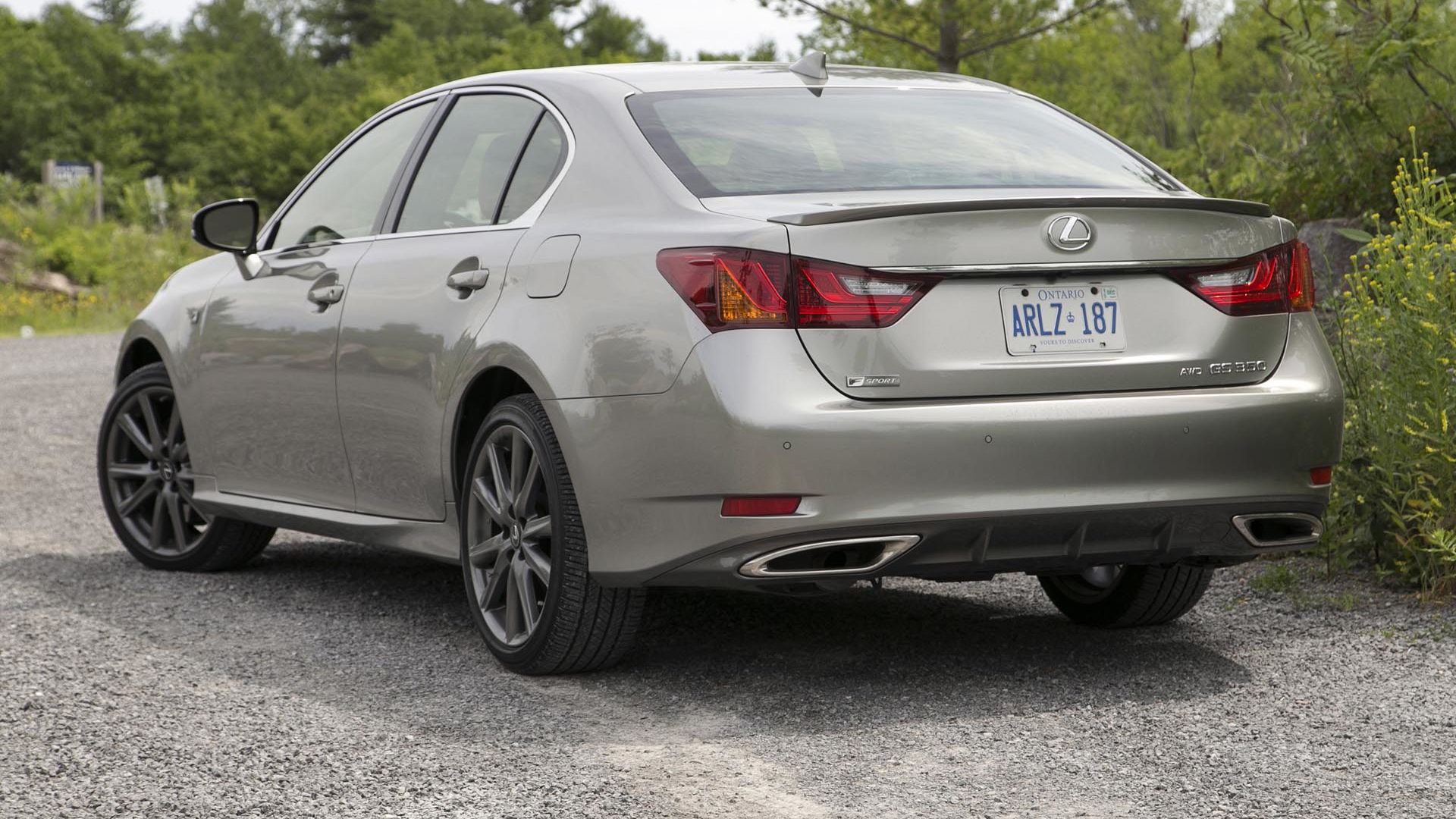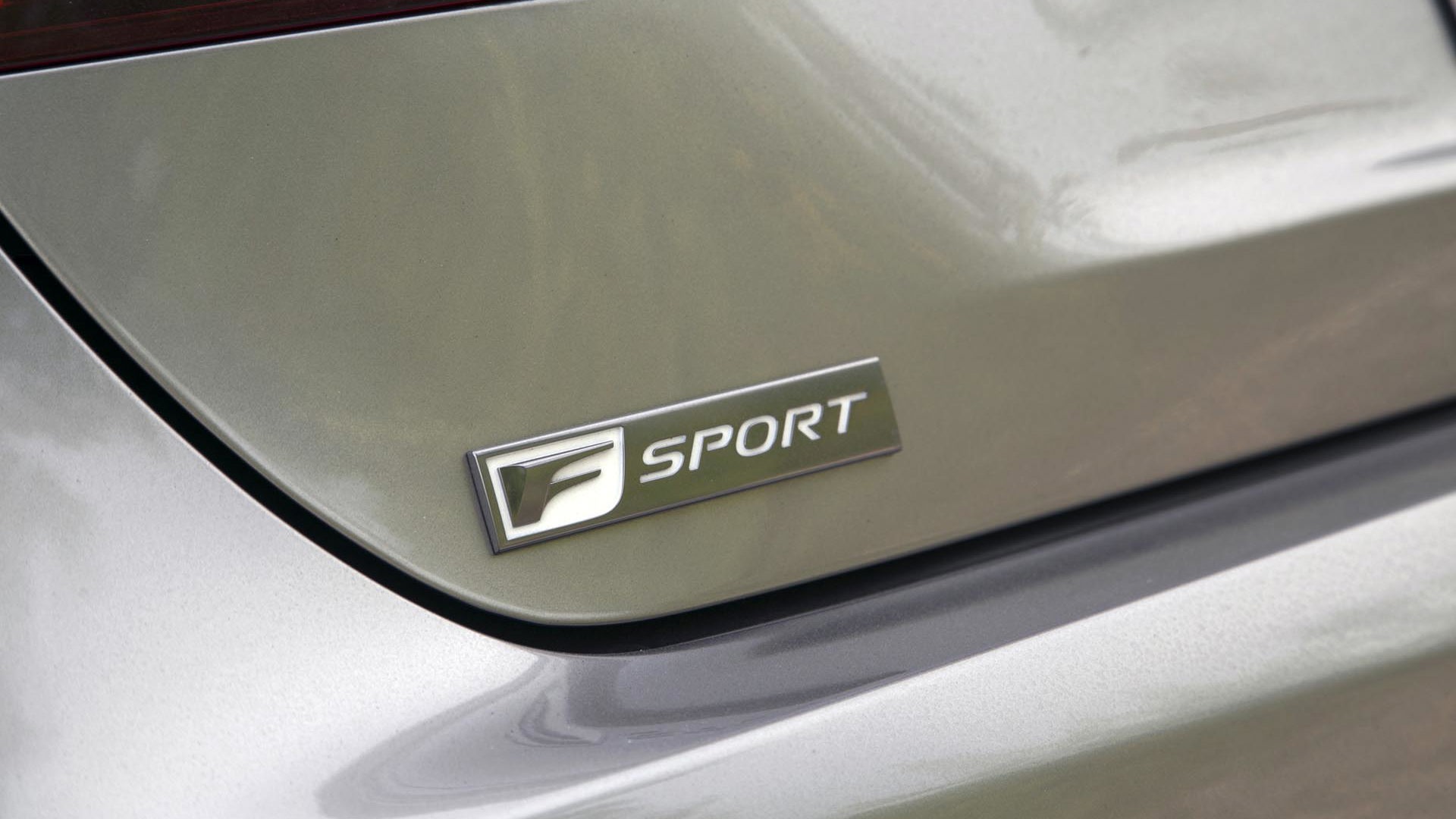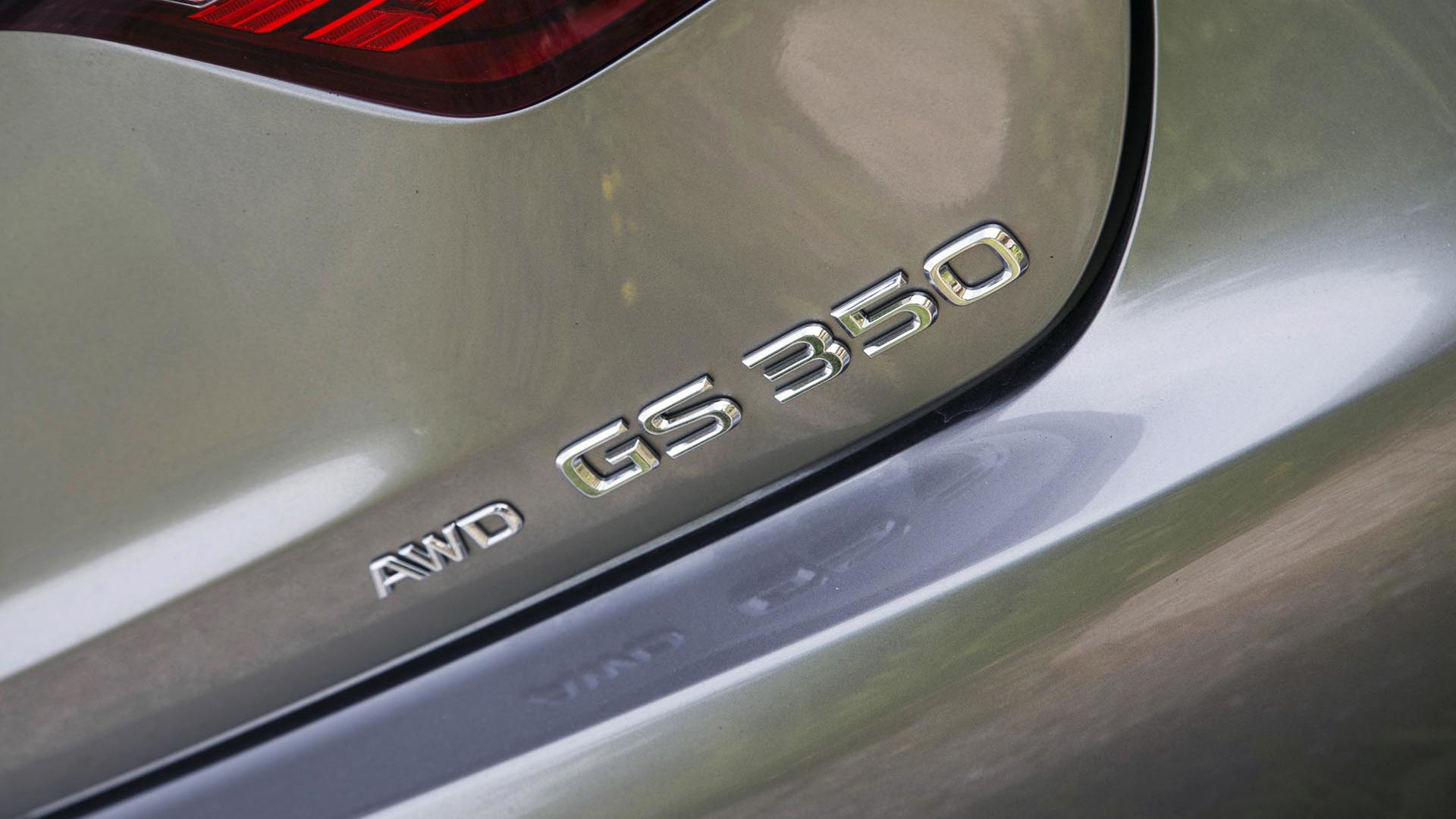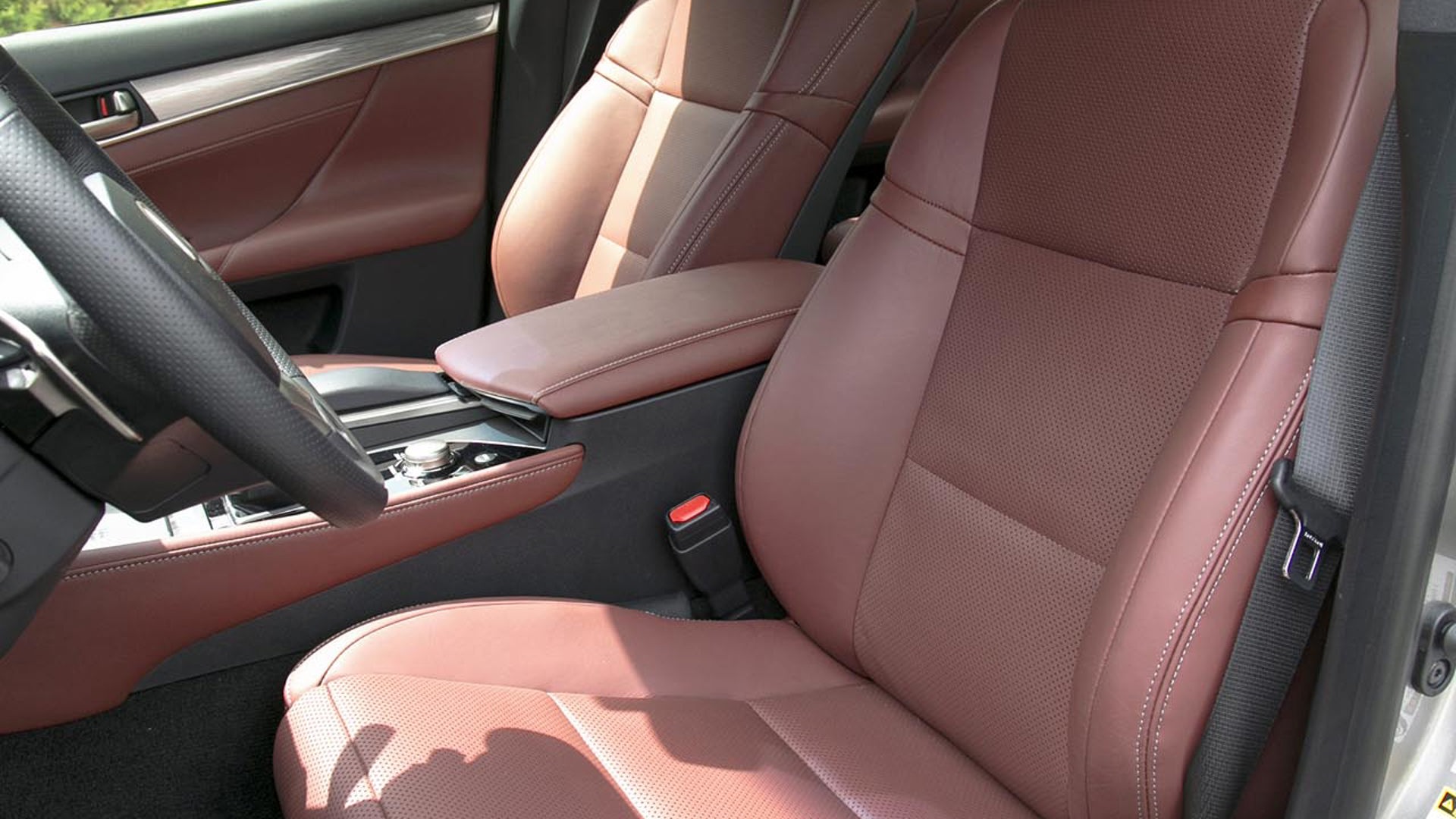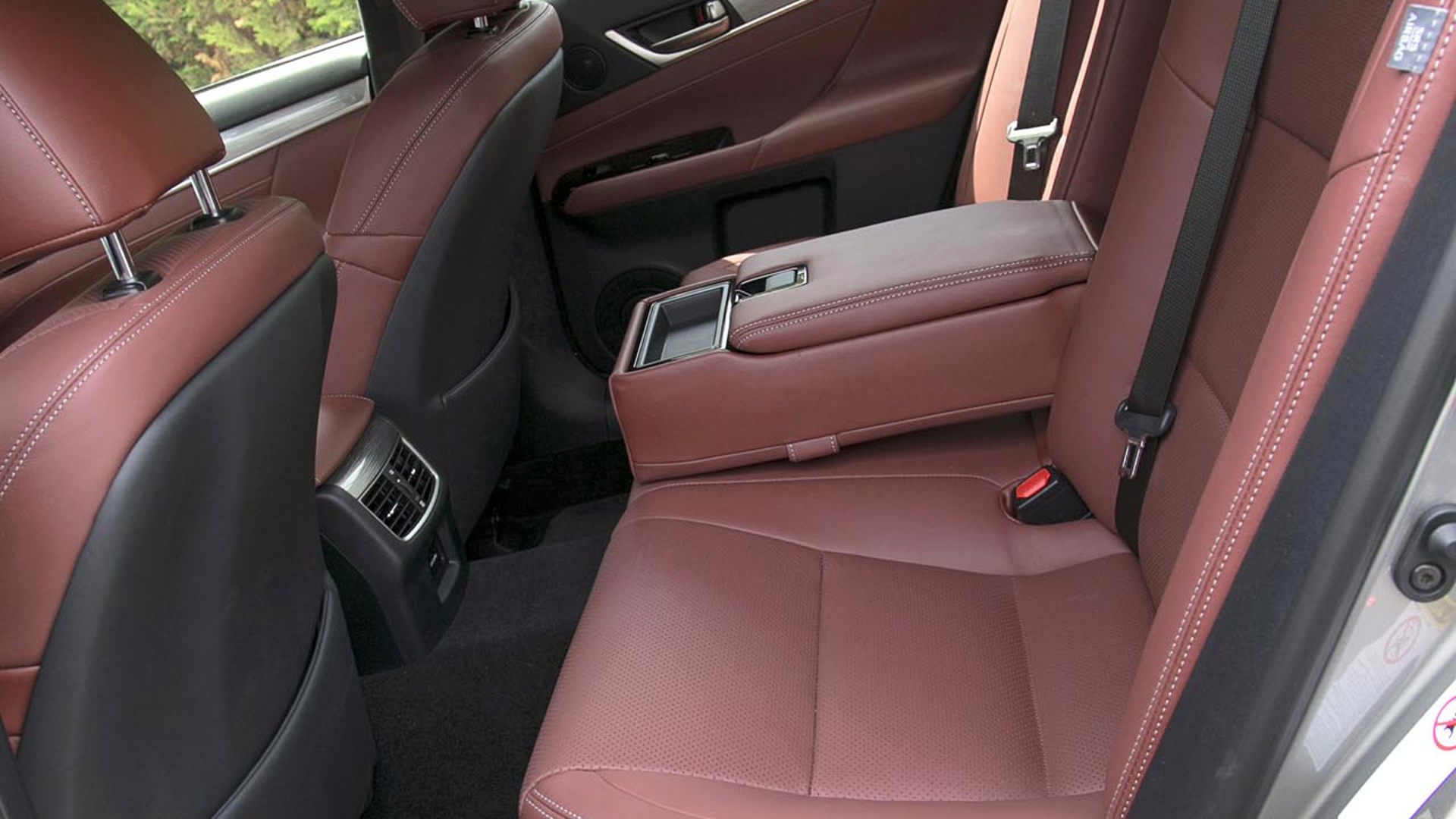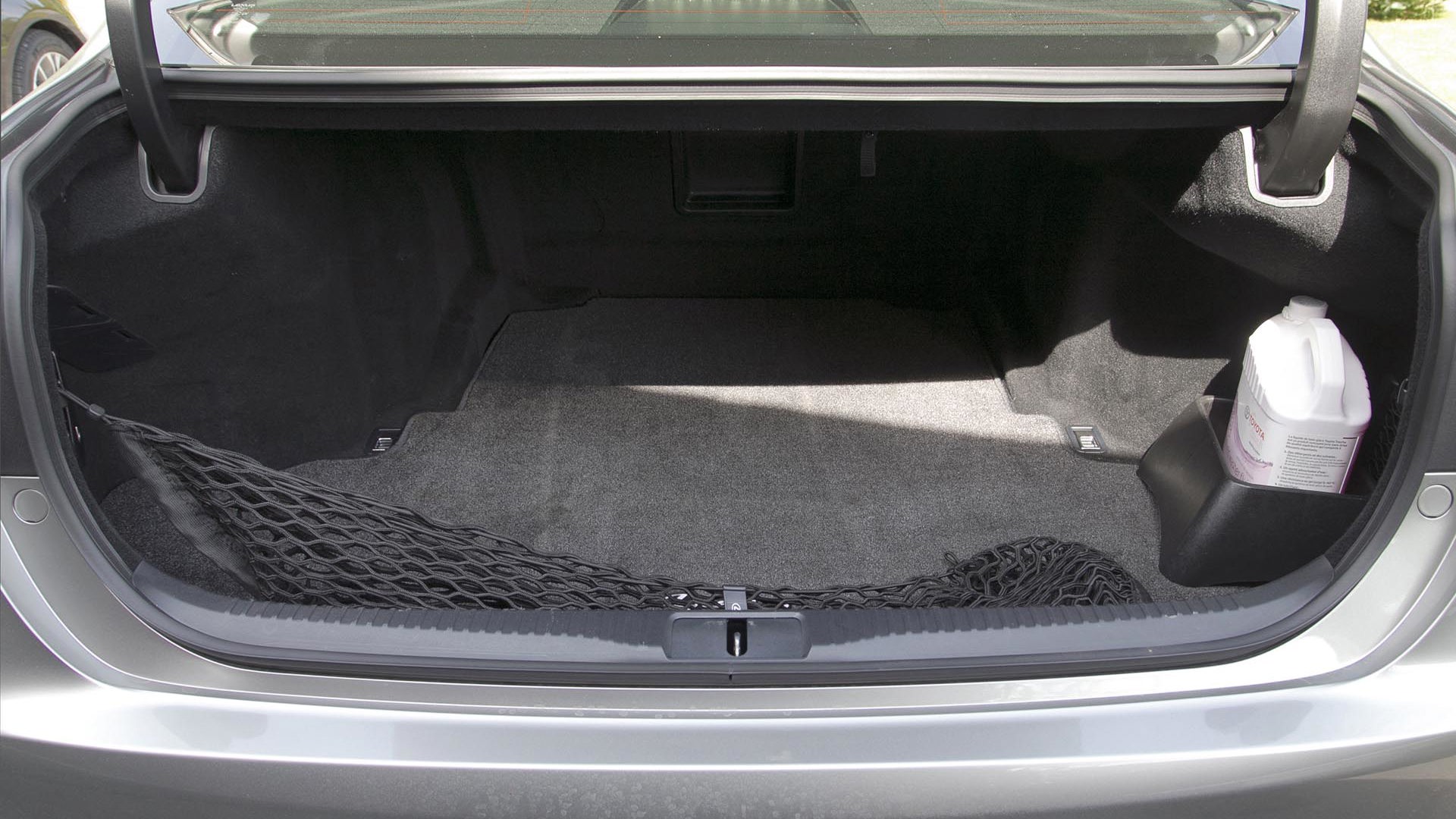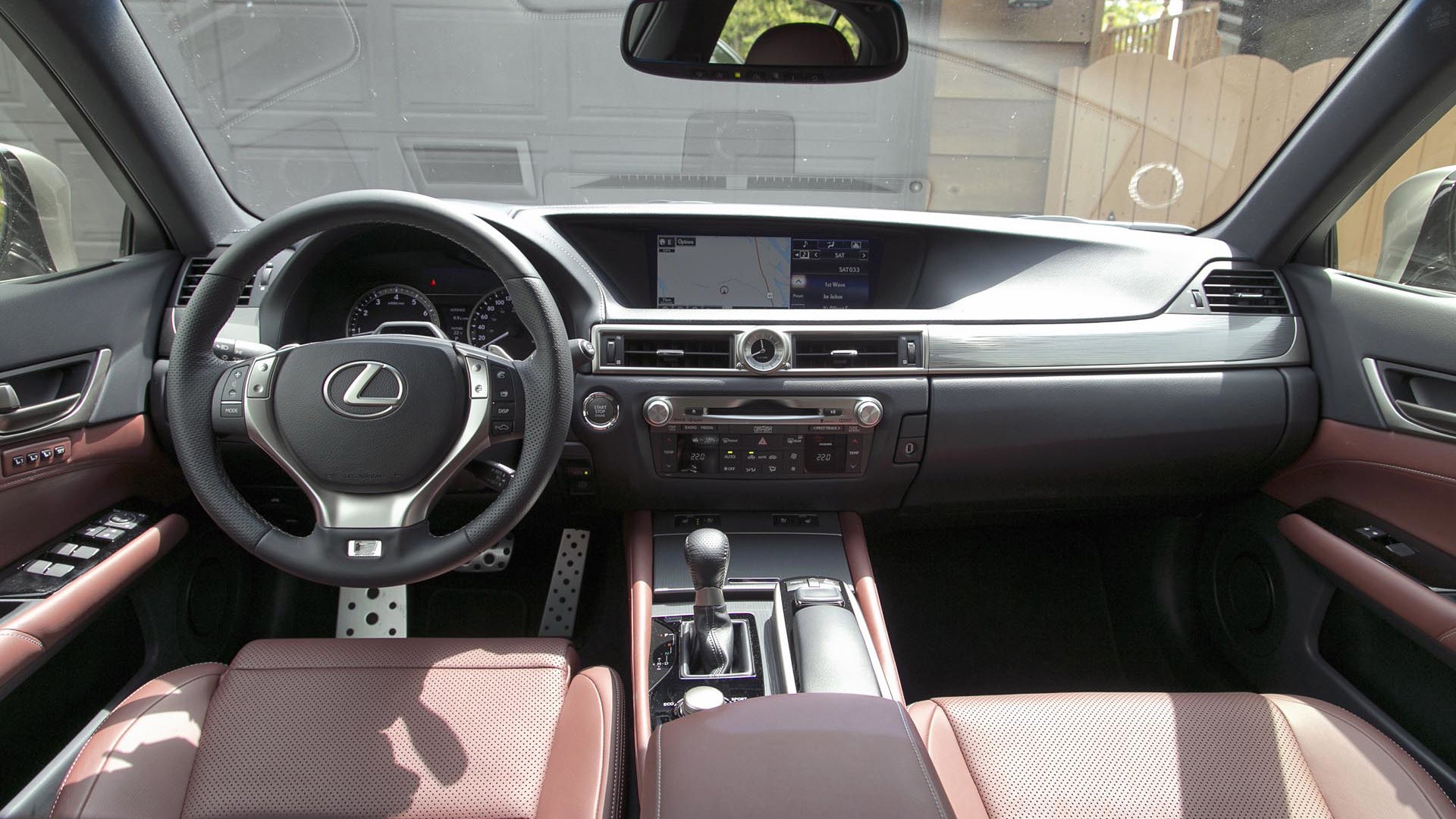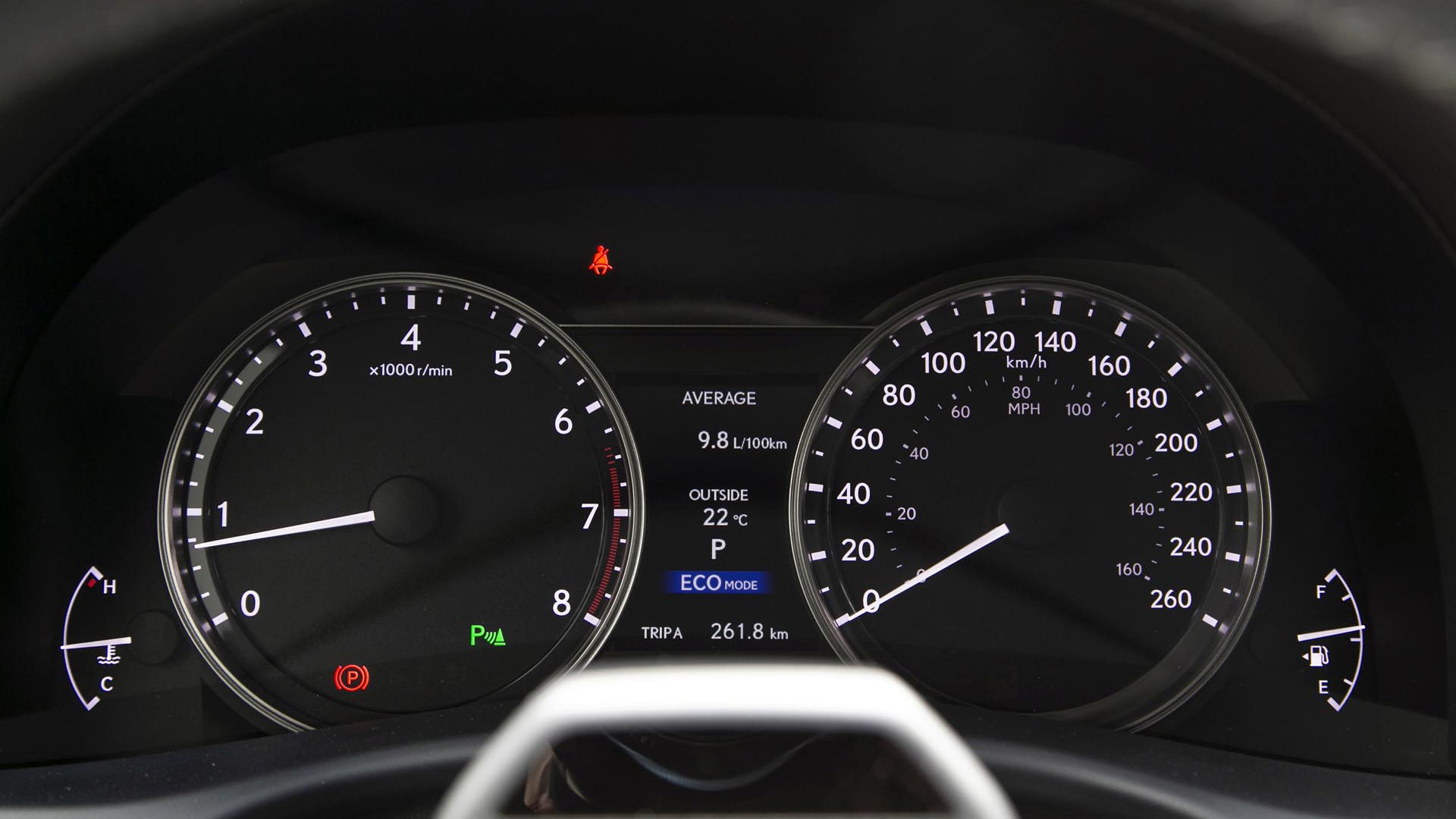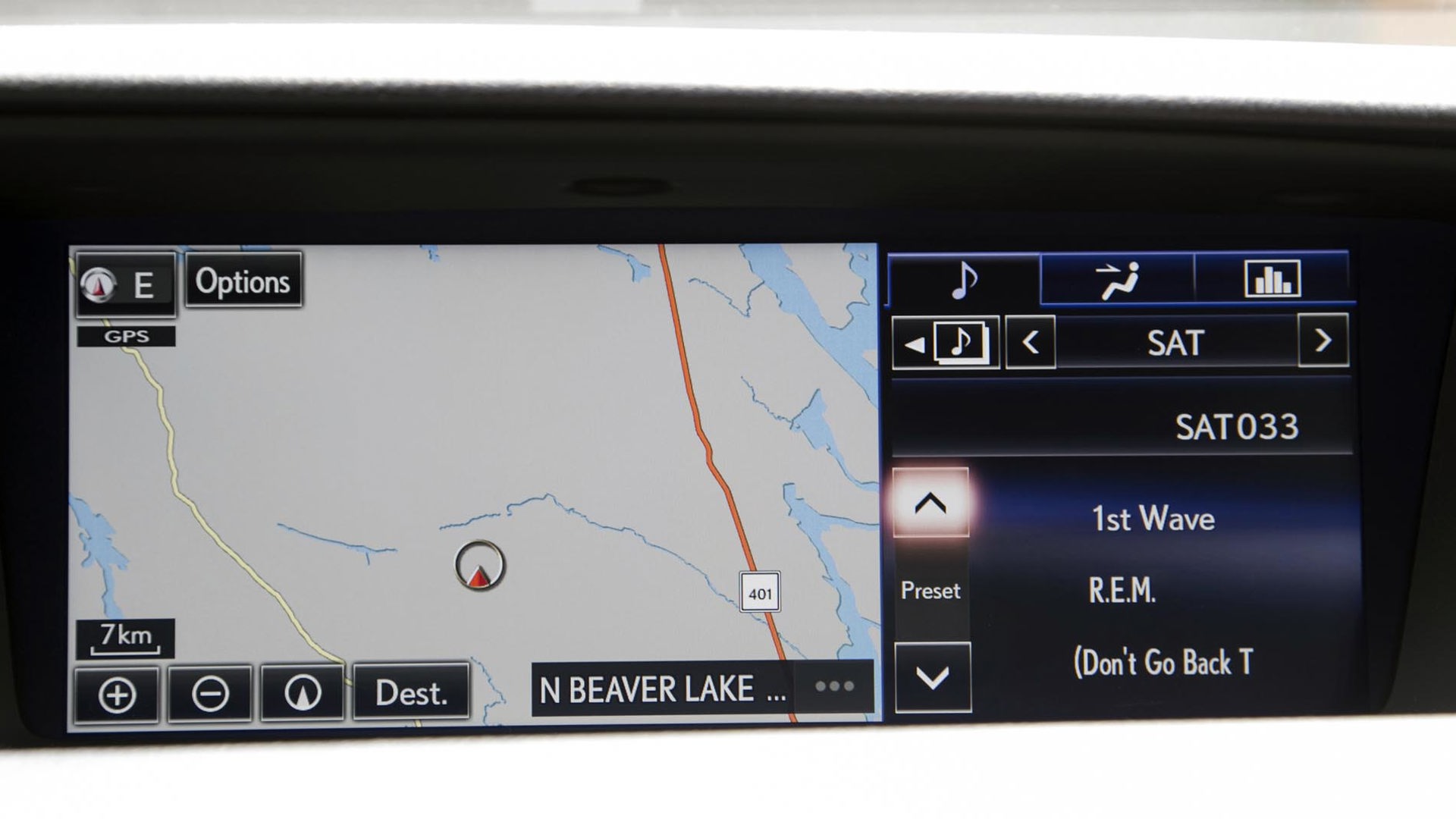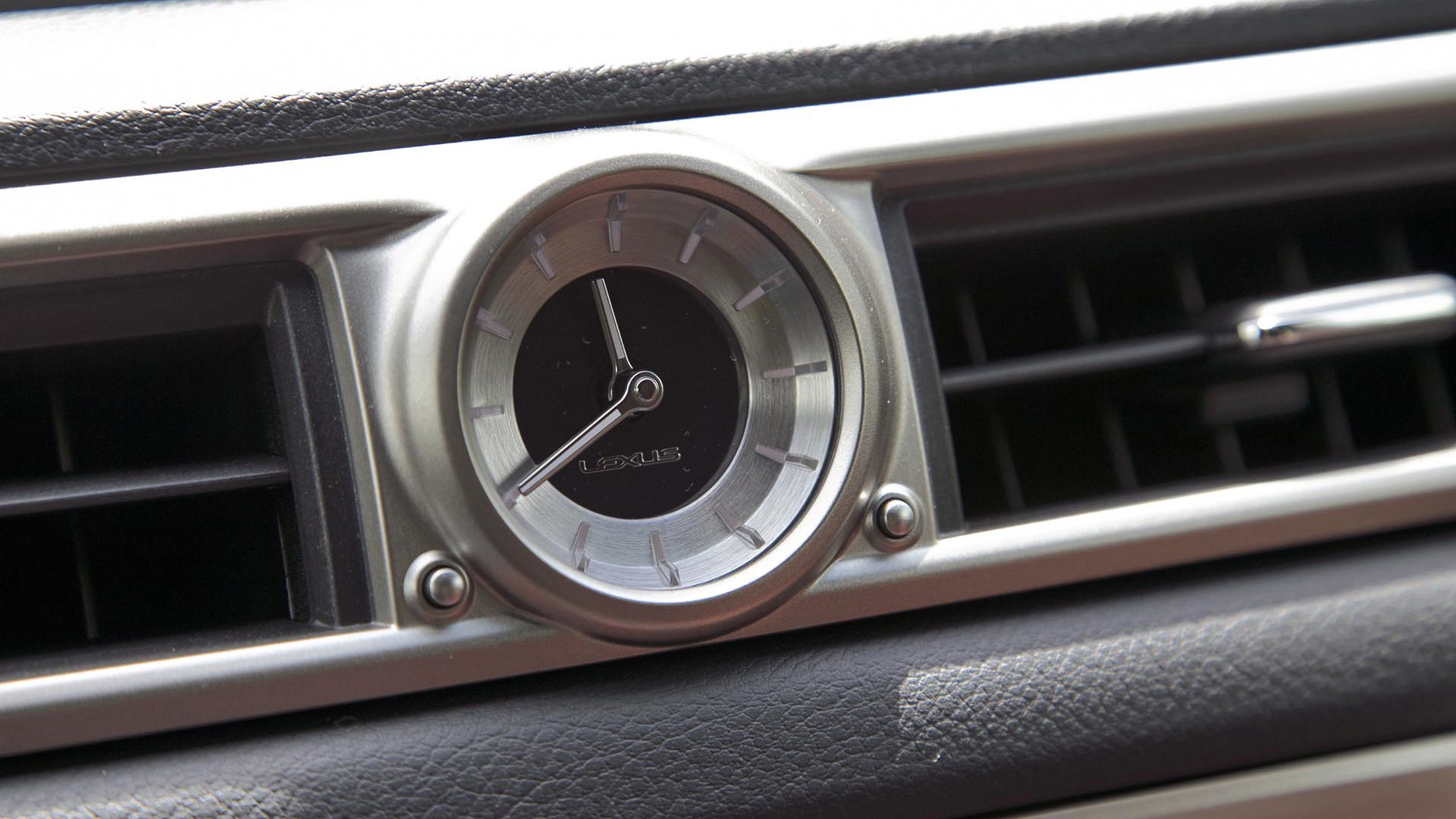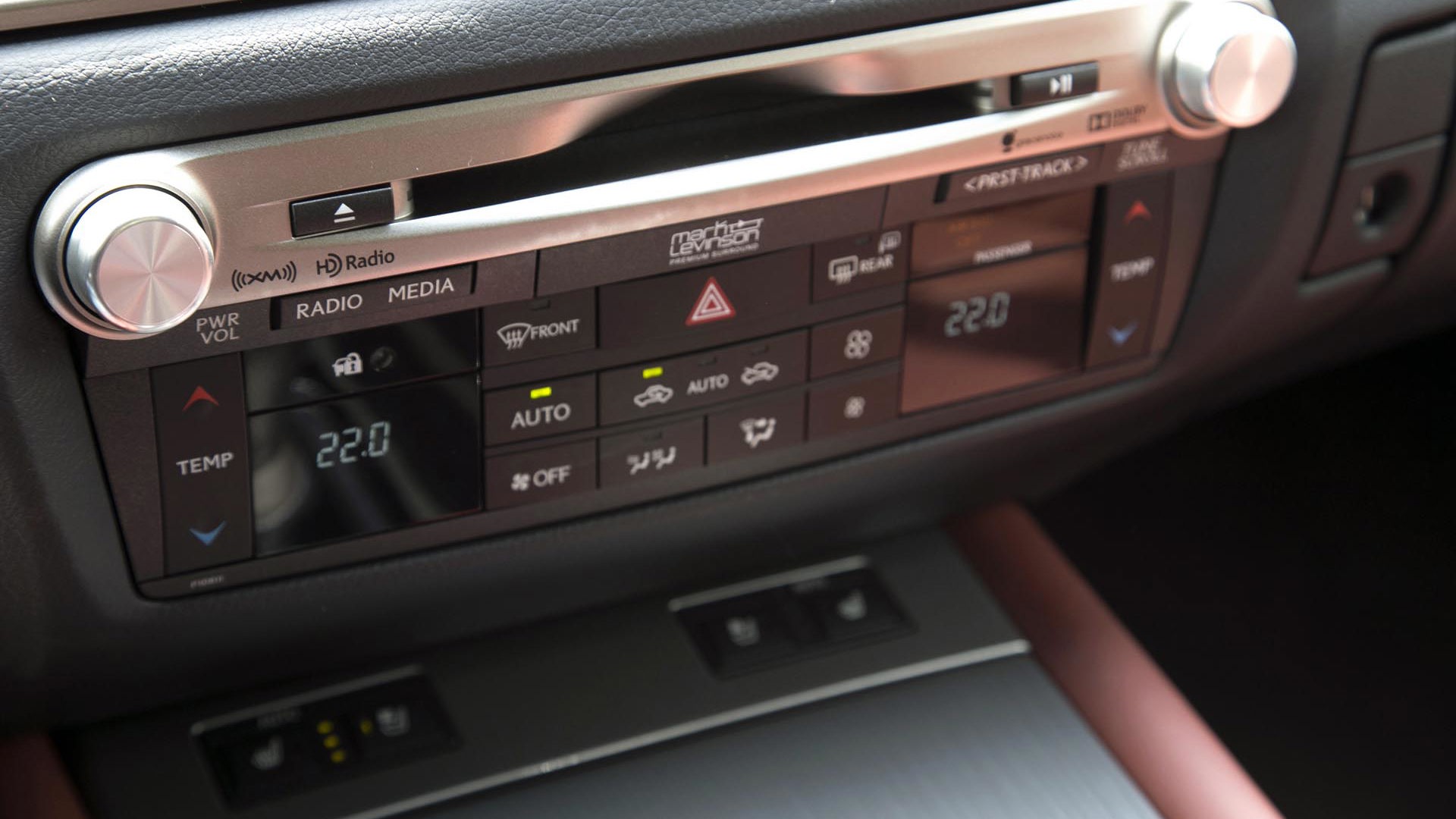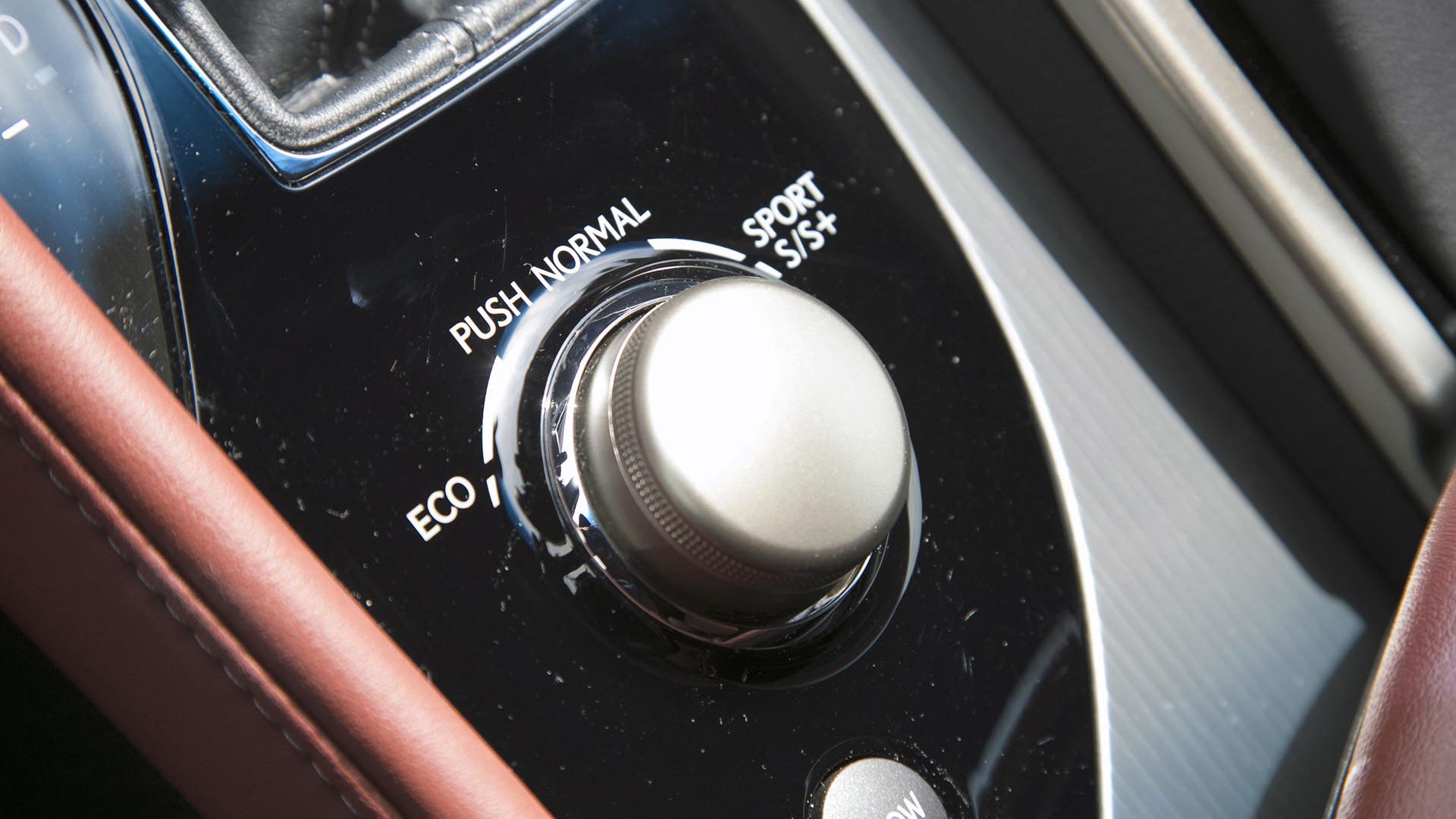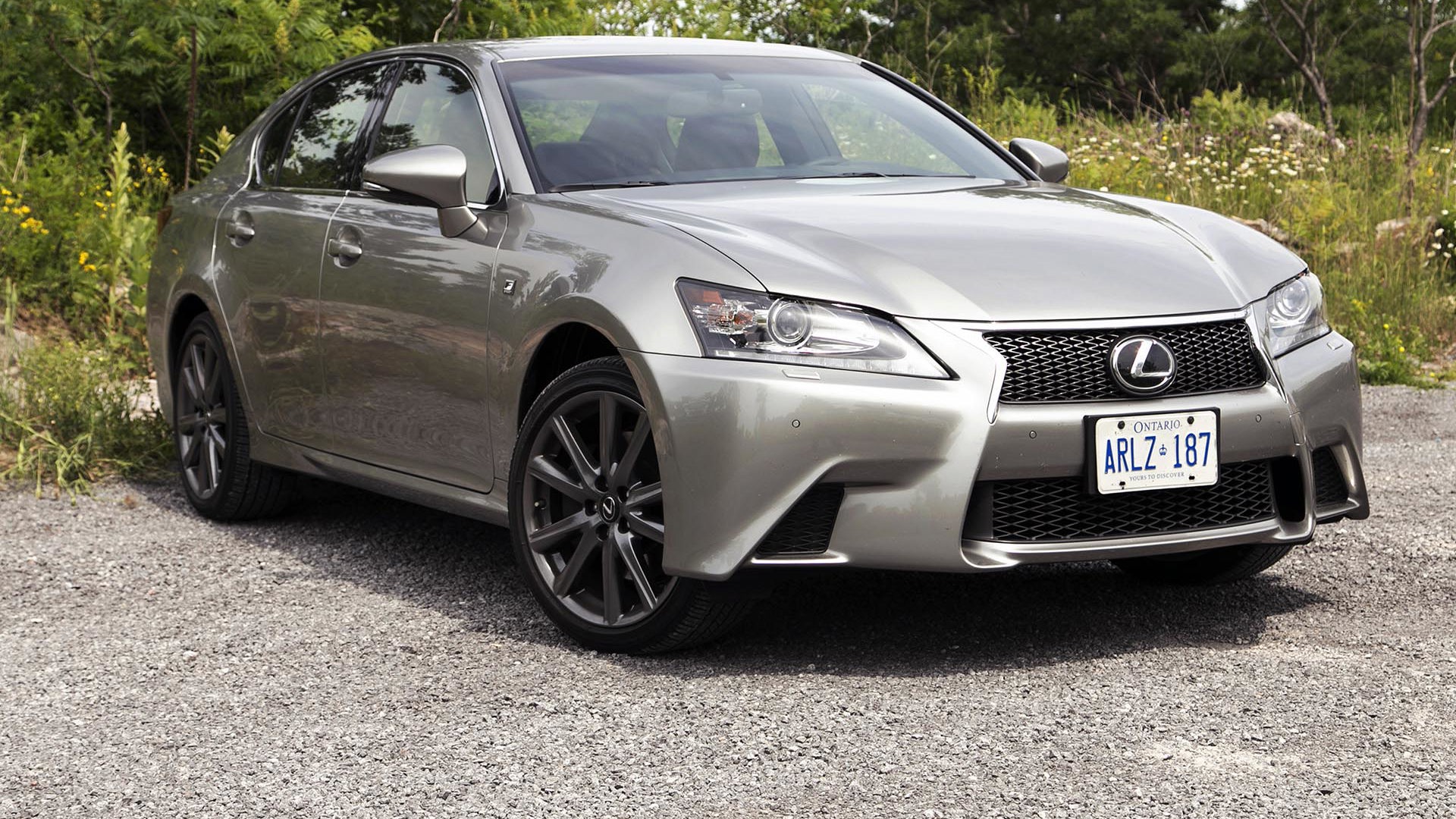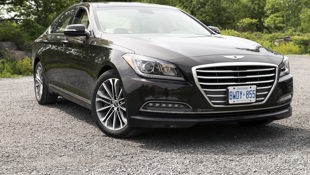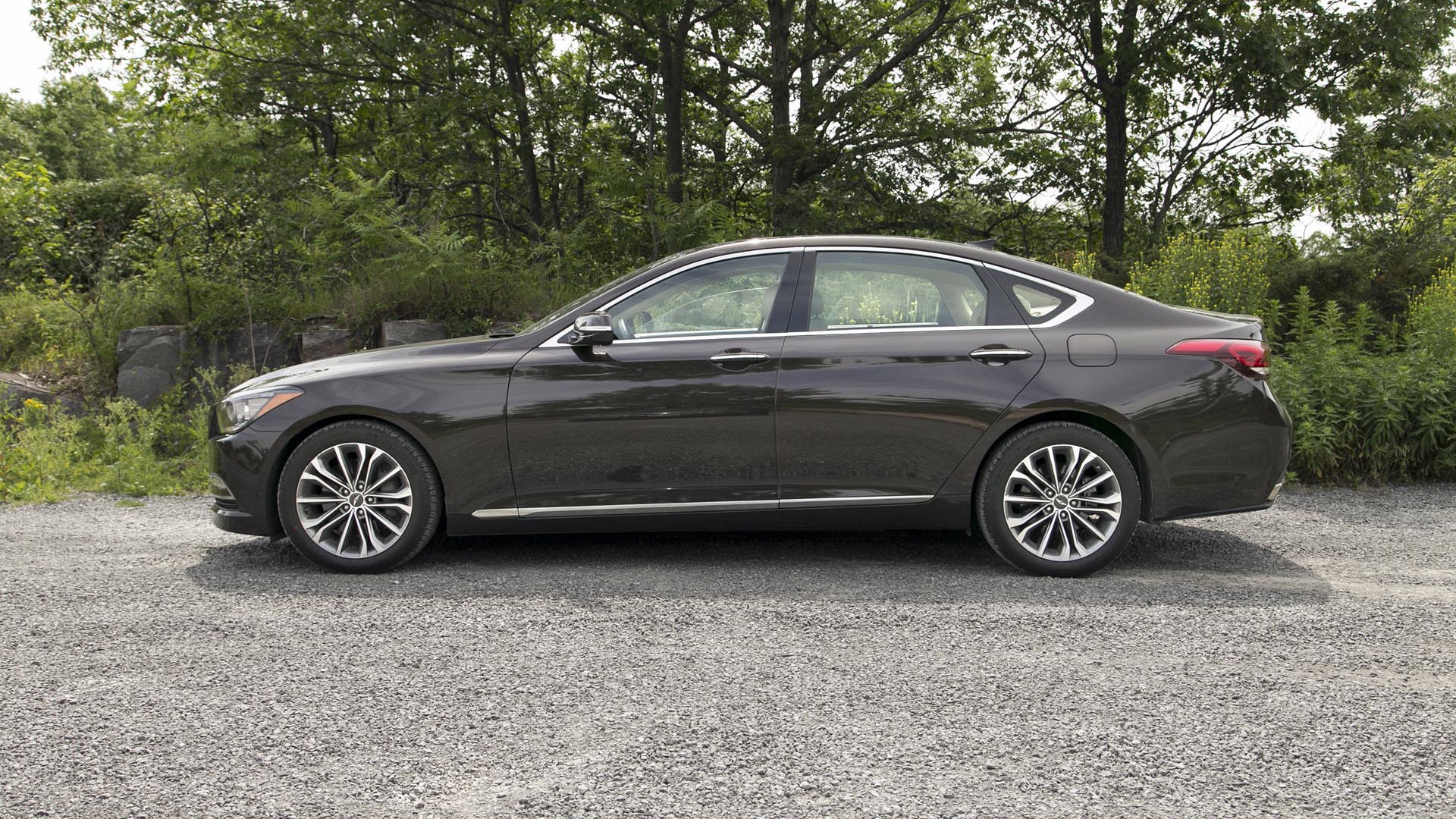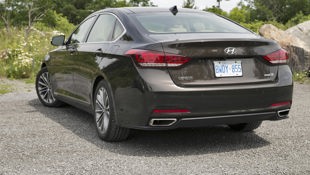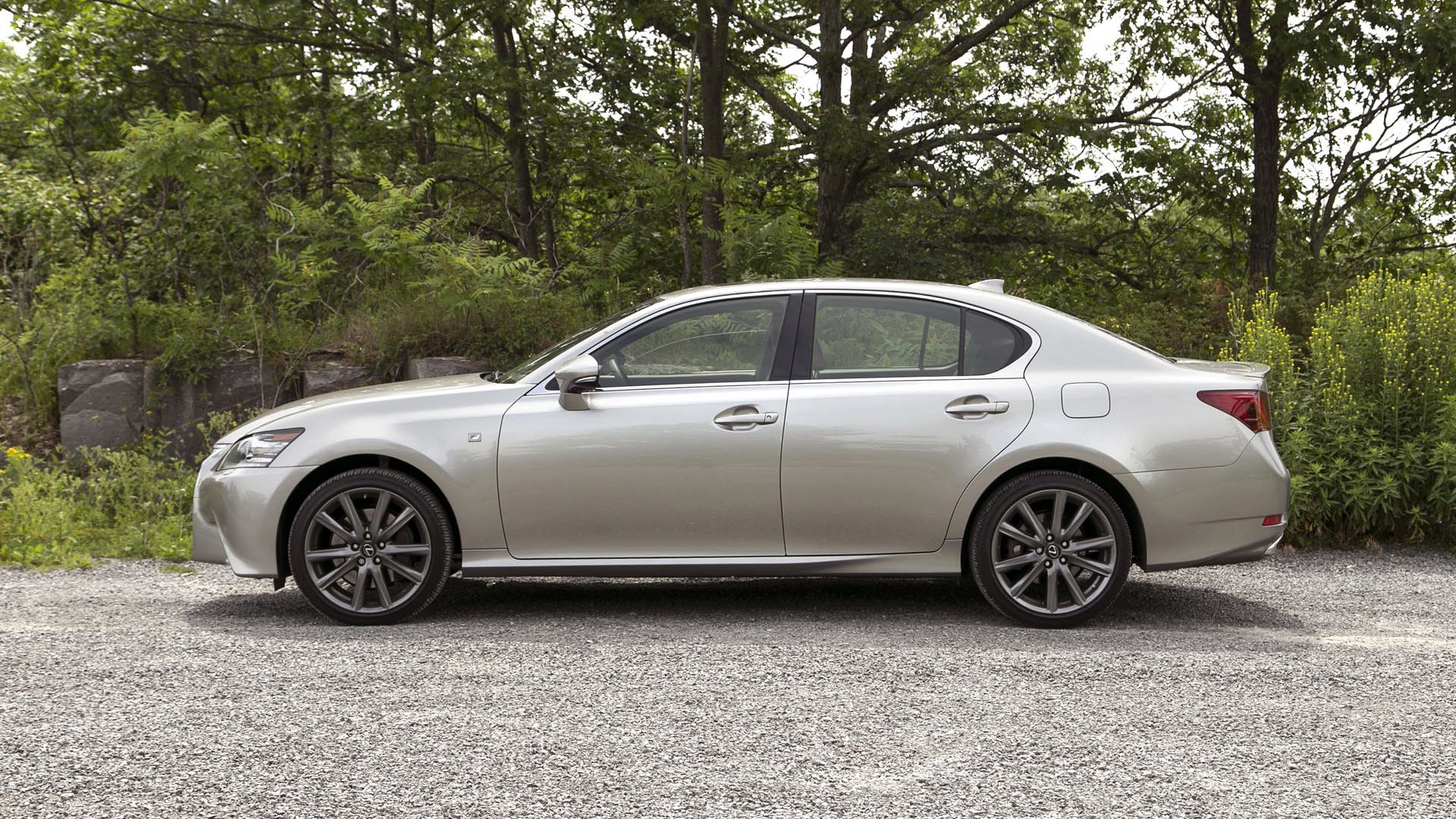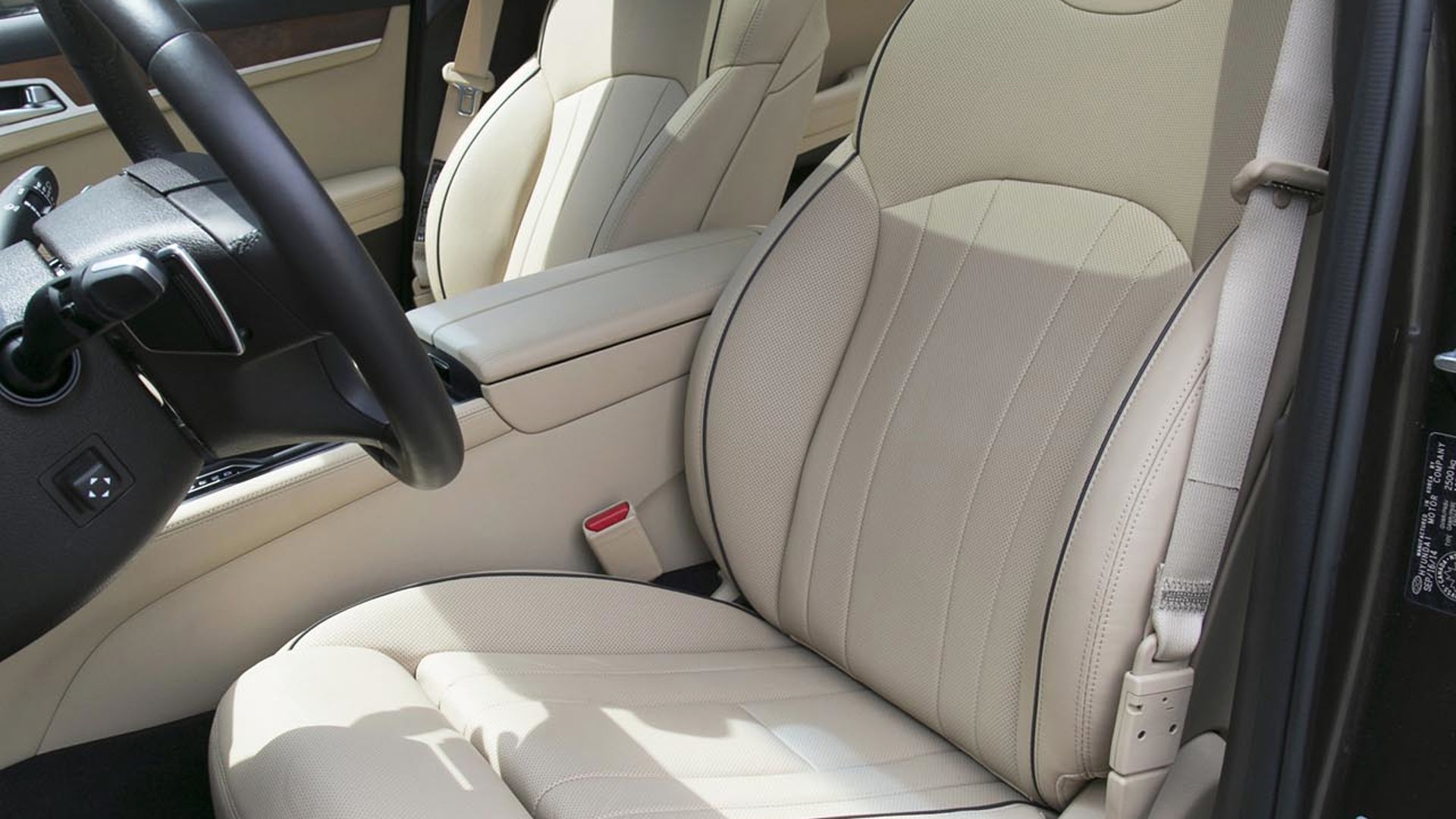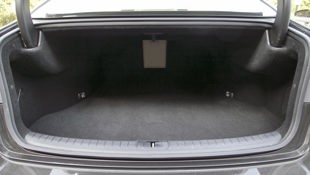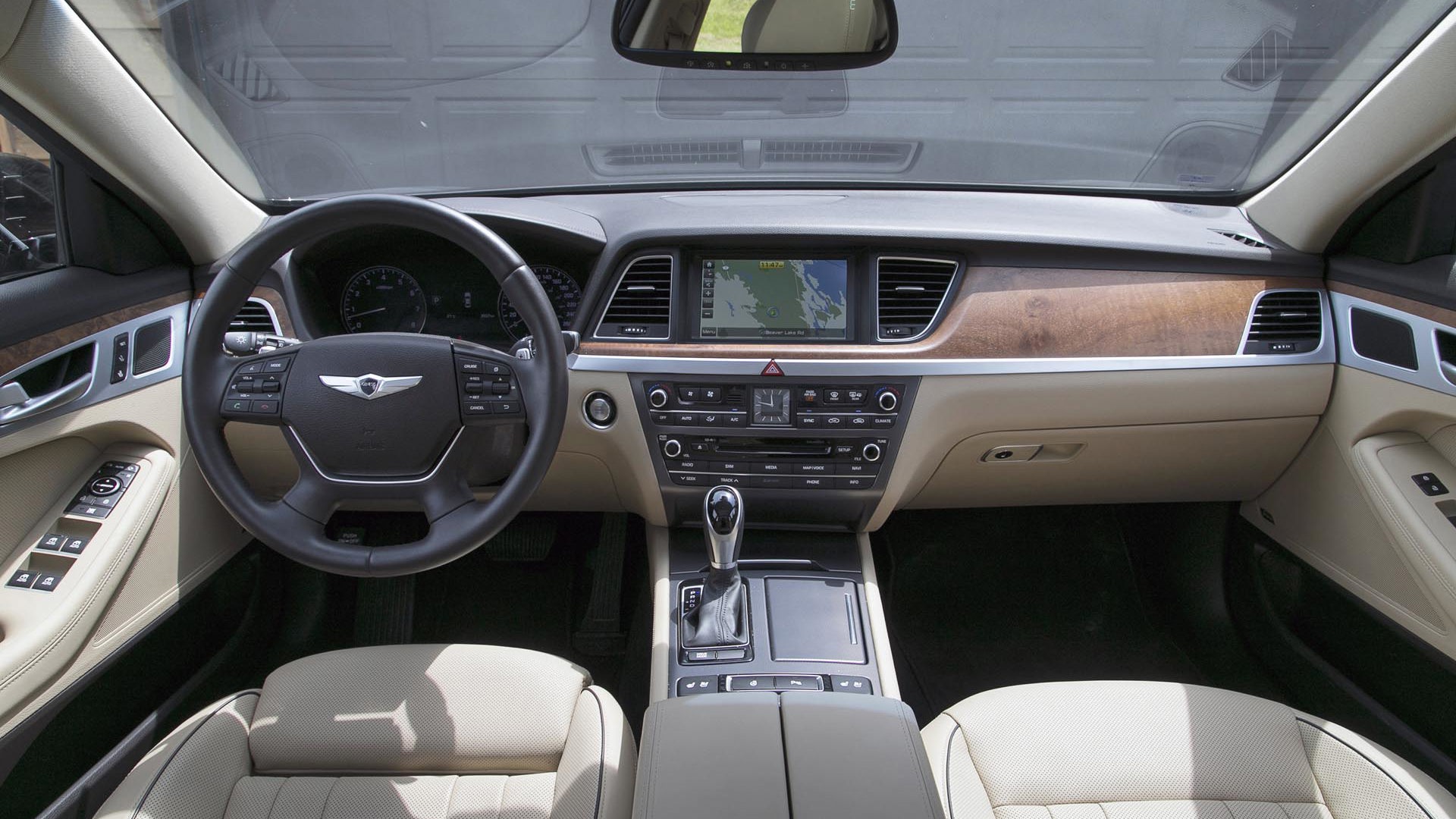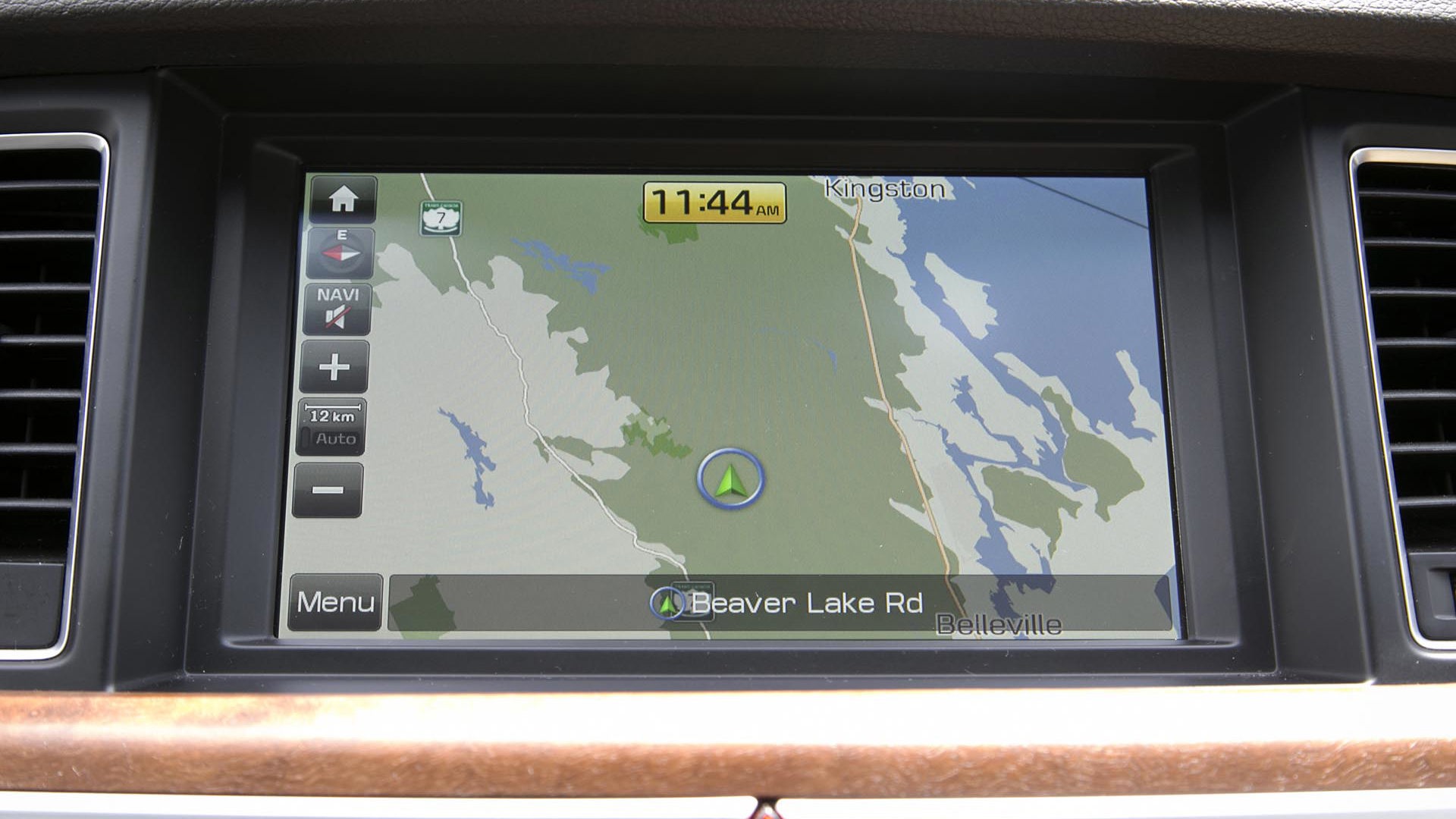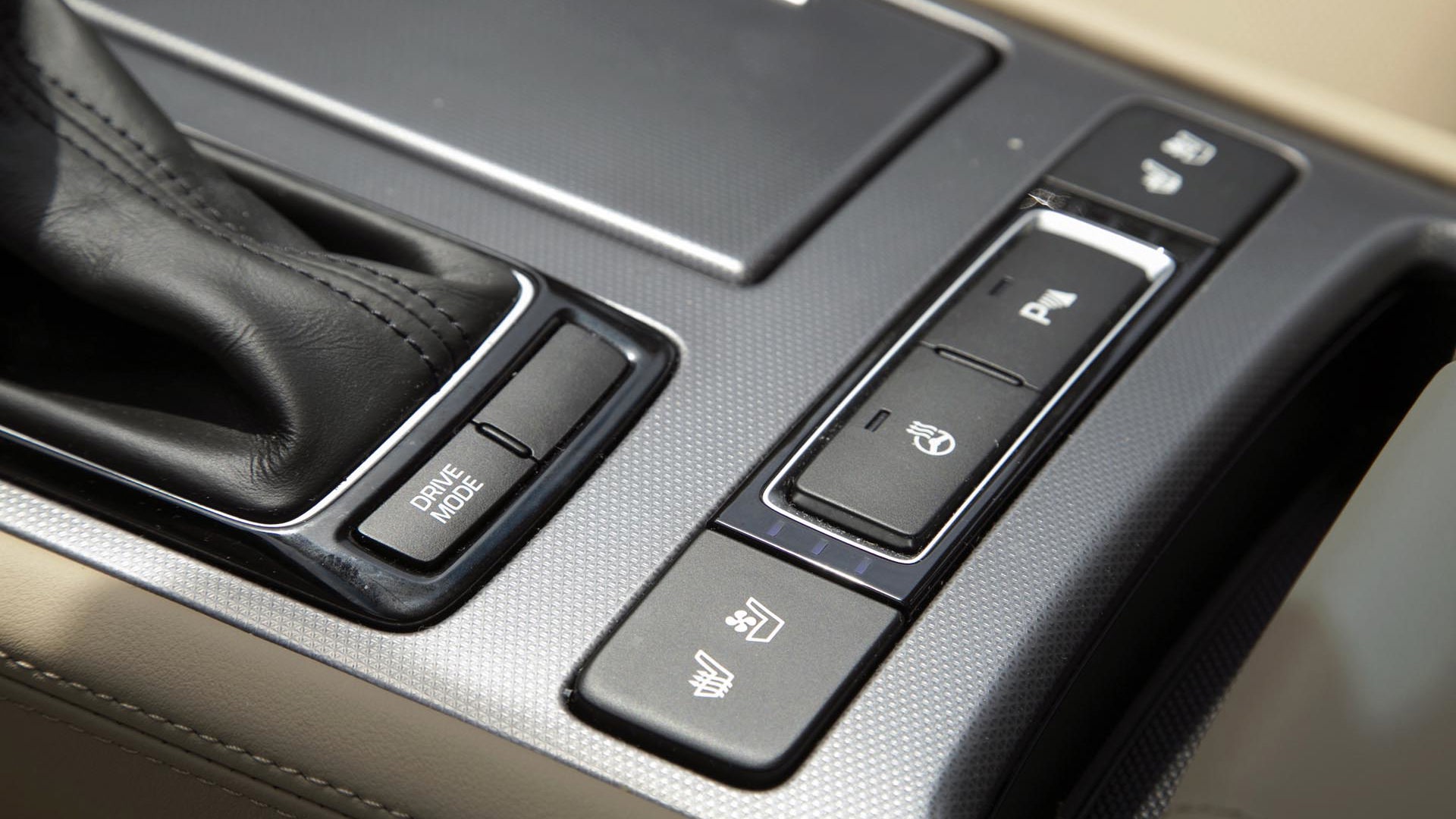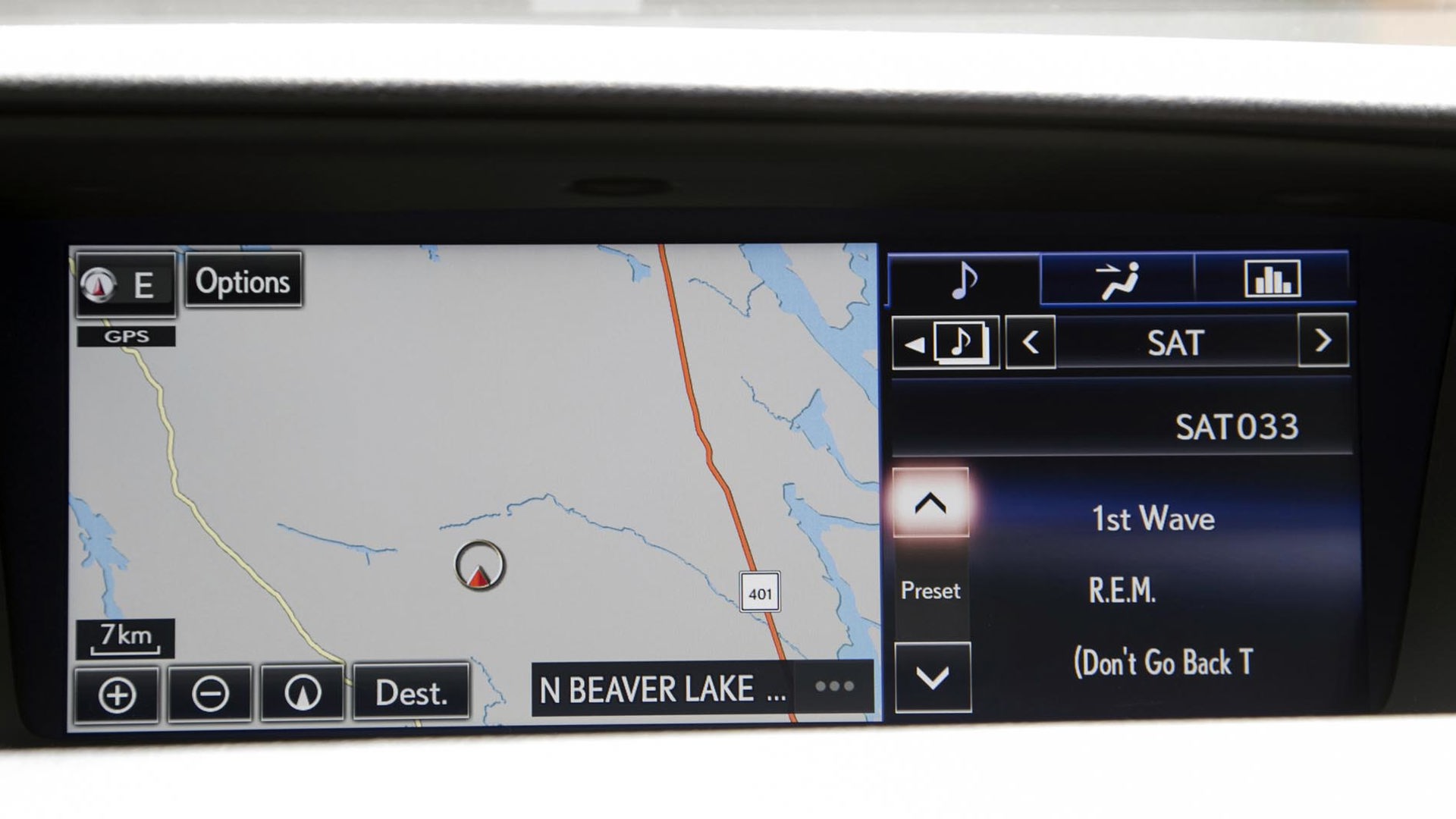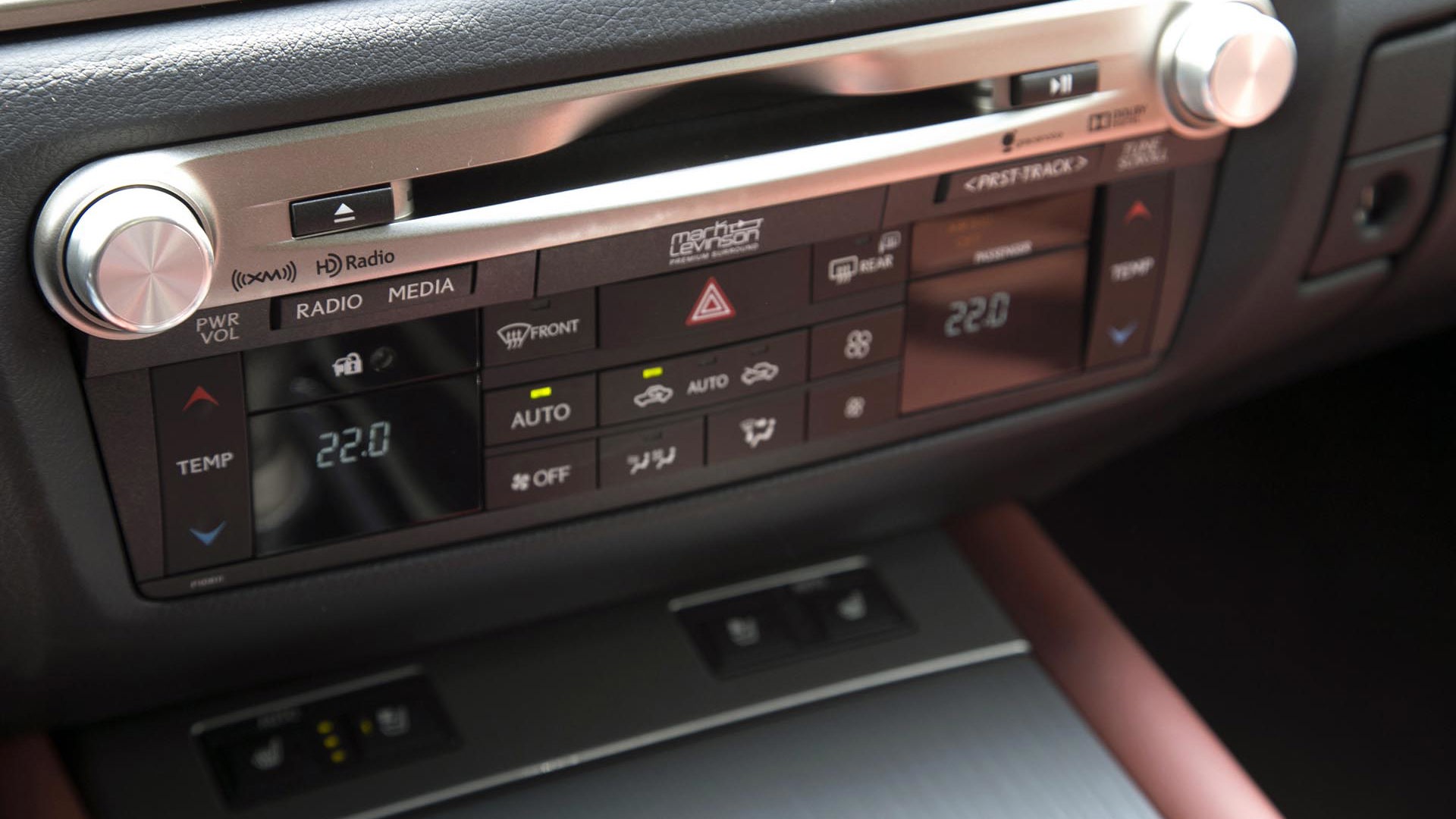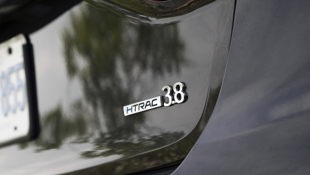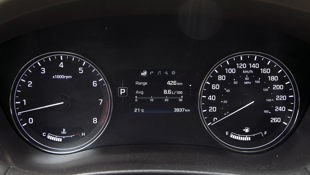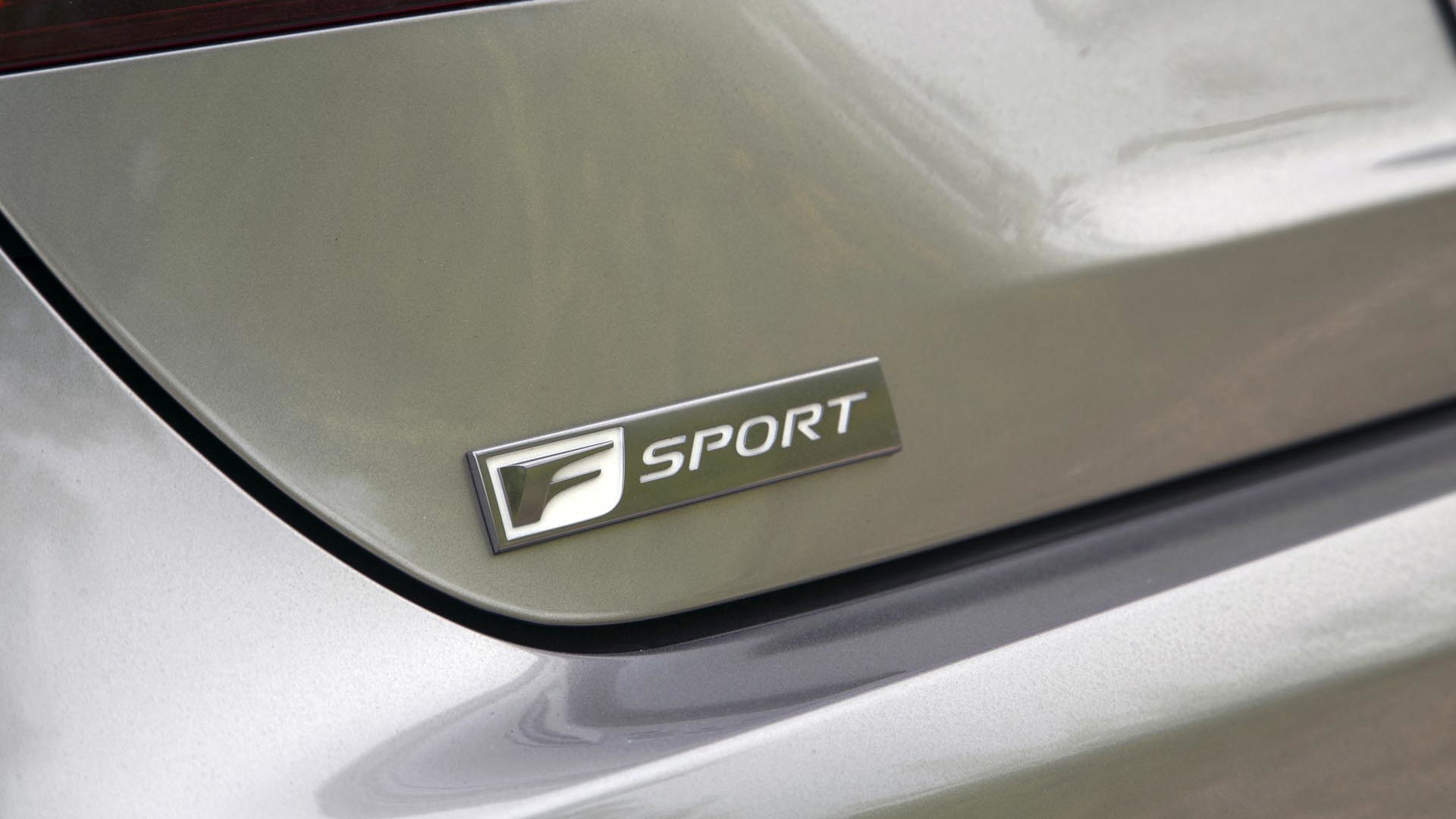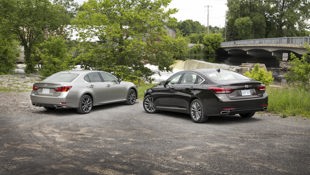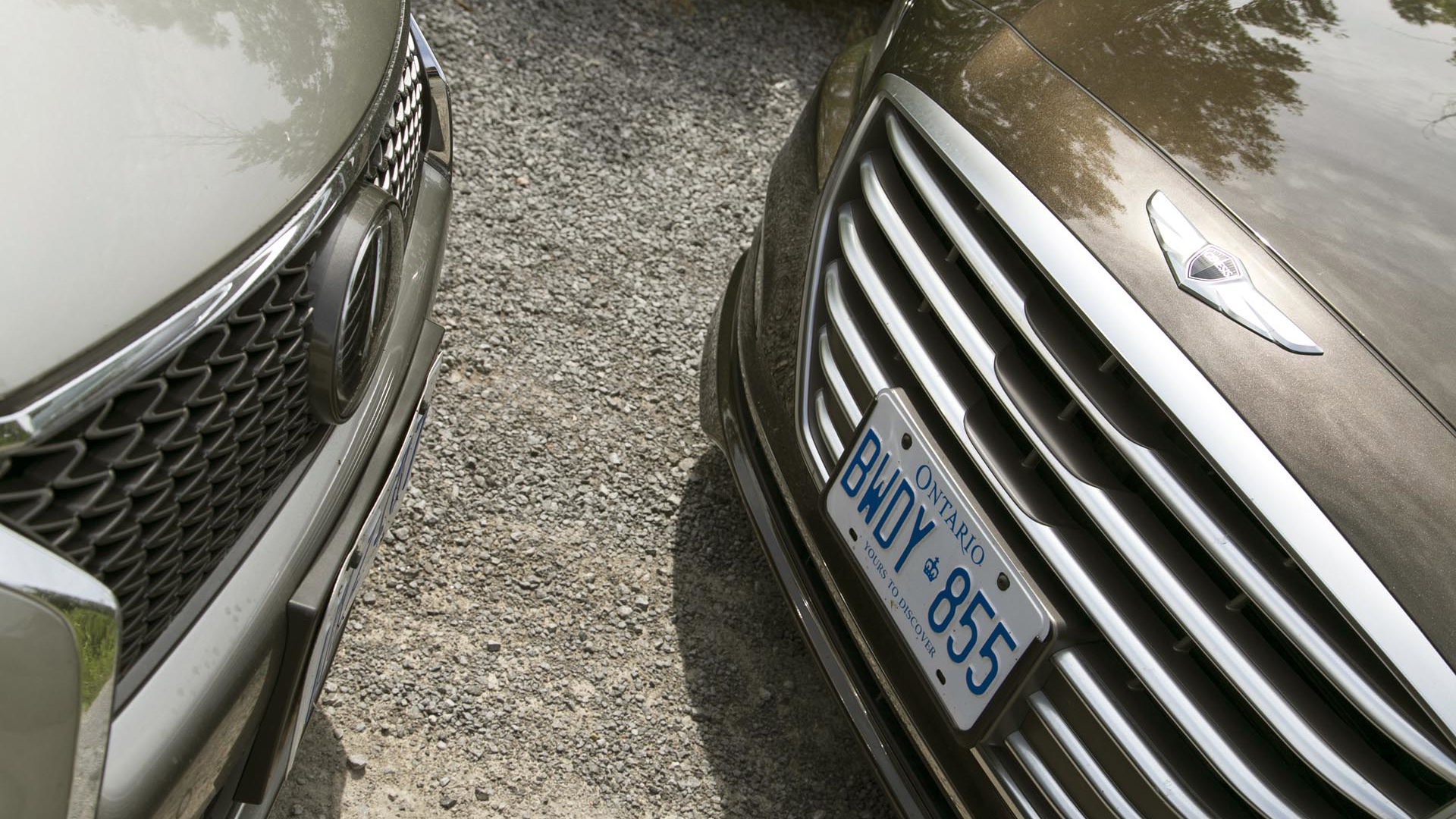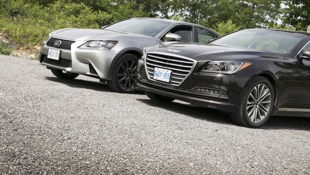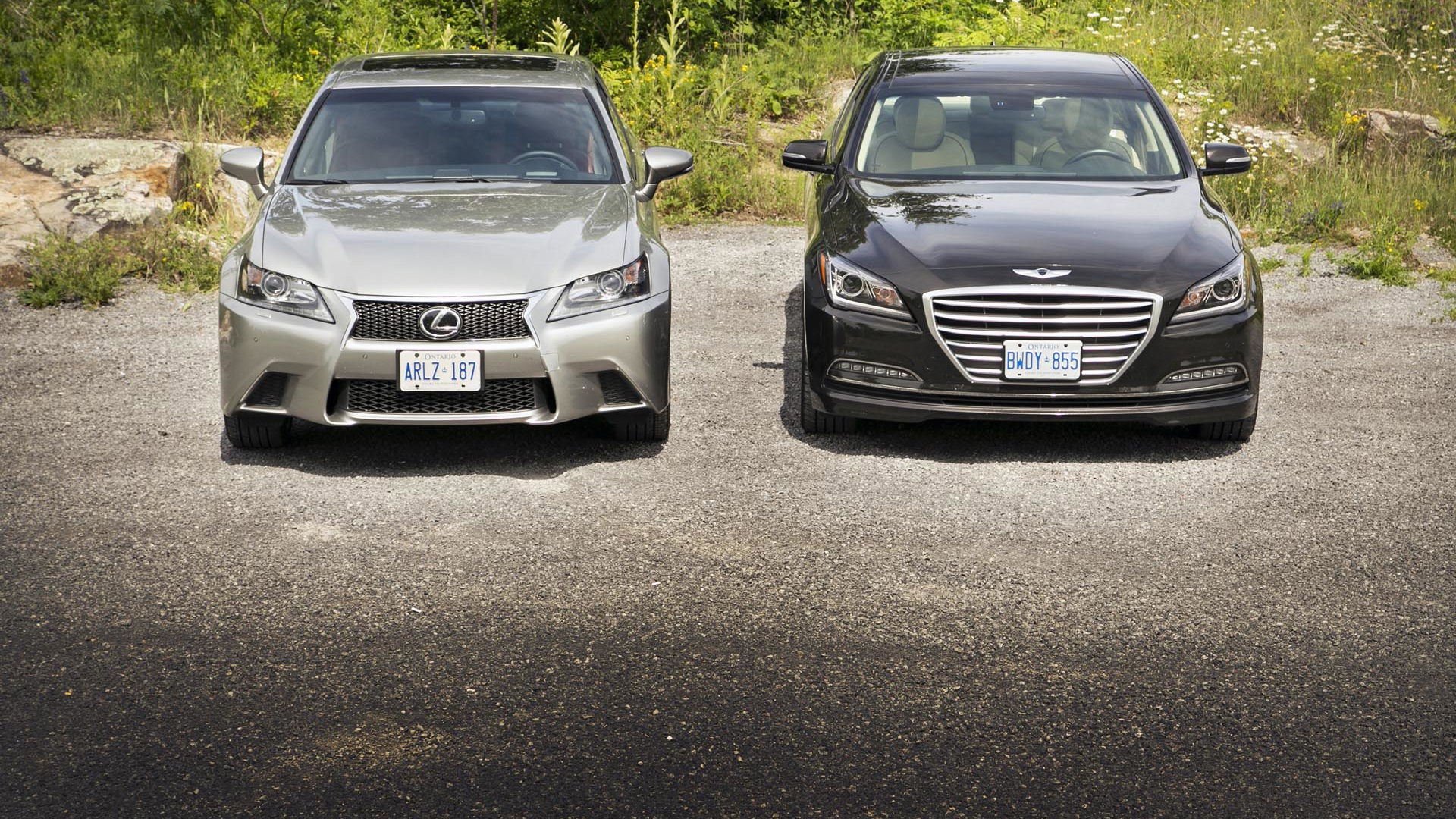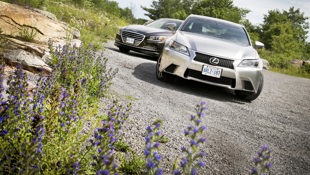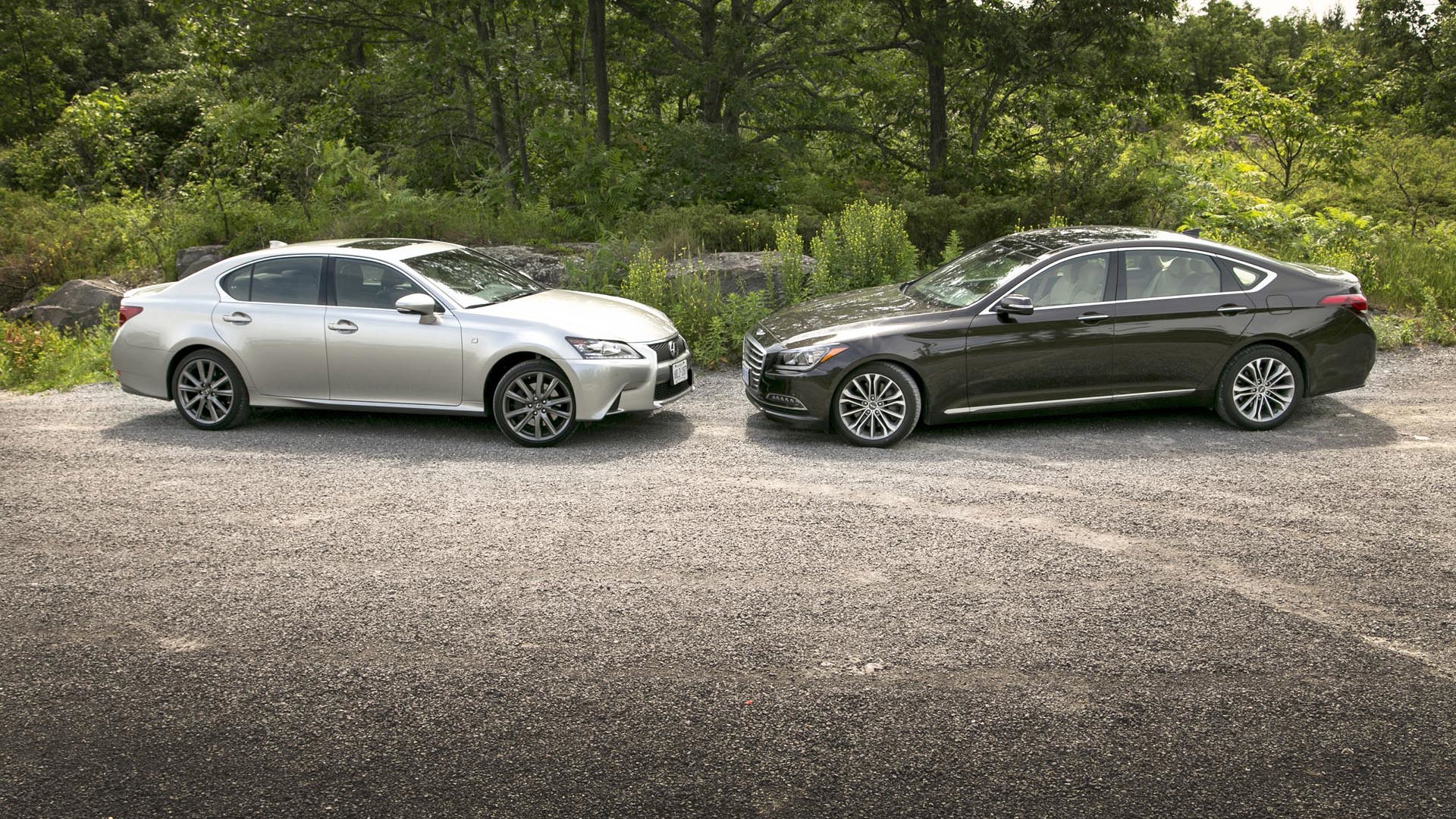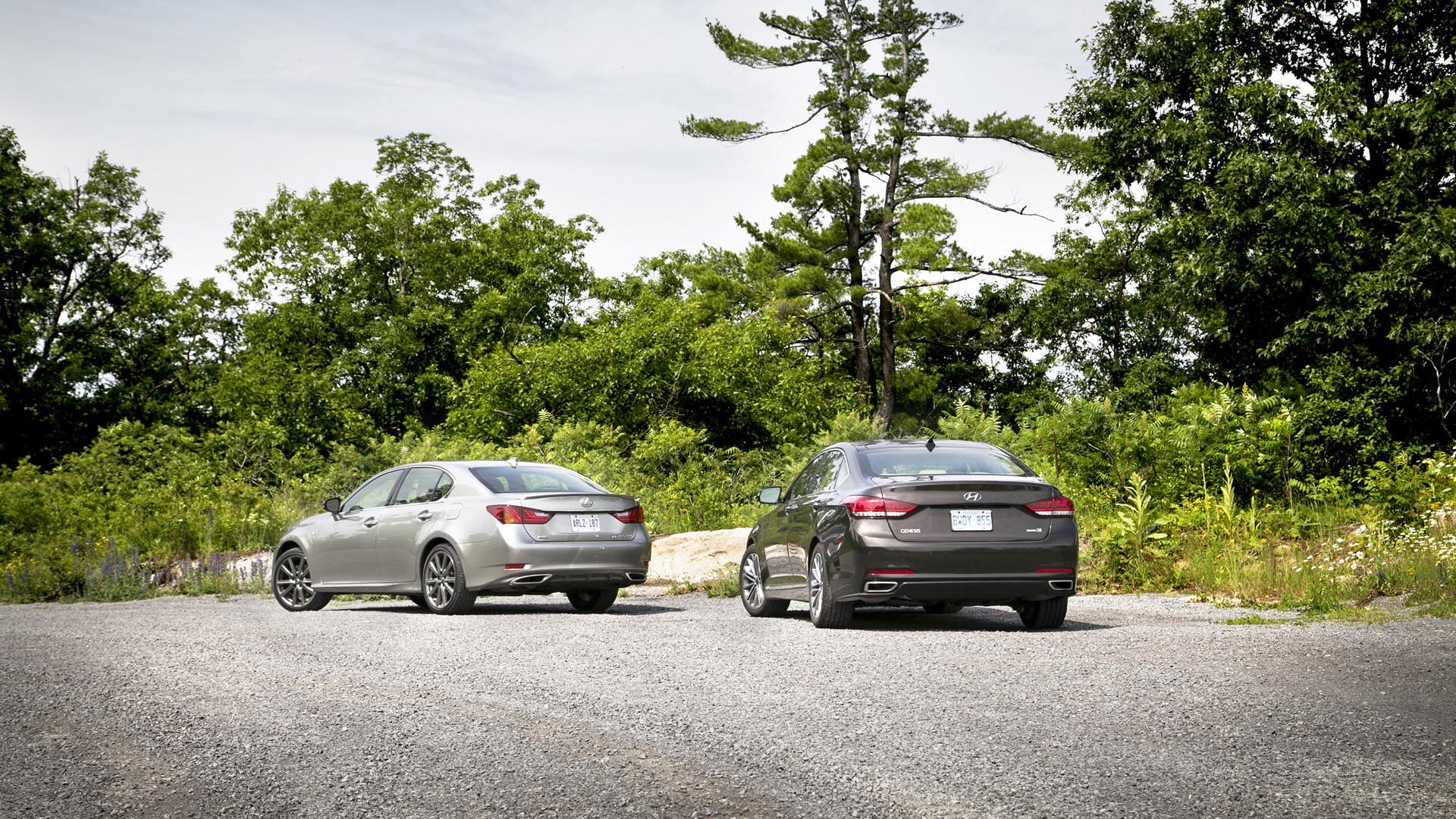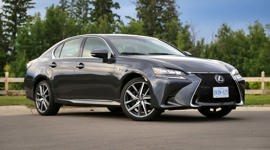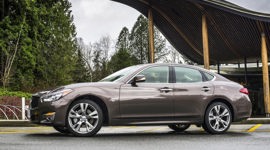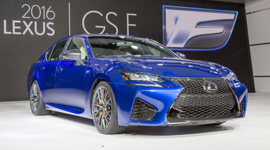Comparison Data
|
Base Price
$48,000
|
$57,850
|
|---|---|
|
Optional Equipment
None
|
F SPORT Series 2, $8,800 (key package features include: F Sport trim, 19-inch wheels, Premium Mark Levinson Audio System, Adaptive Variable Suspension, F Sport Leather Seats, Dynamic Radar Cruise Control, Head Up Display, Easy-close Trunk)
|
|
A/C Tax
$100
|
$100
|
|
Destination Fee
$1,995
|
$1,995
|
|
Price as Tested
$50,095
|
$68,745
|
A little over a year ago, we wondered aloud why the Lexus GS 350 – a car that’s delightfully comfortable and composed – sells in such small numbers in Canada. Then we pitted it against the hottest new mid-level luxury sedan in the land: Cadillac’s excellent CTS sedan and wondered even more. After hard-fought competition, the Lexus emerged bloodied and battered, but victorious due in no small part to the excellent value it represented against the much costlier Caddy.
Sadly, the GS’s sales are even softer so far in 2015 despite our praise last year. The Germans continue to do well with their segment offerings, but now there’s a new contender in the mid-size luxo group: Hyundai’s newest Genesis sedan. And let’s just cut to the chase: it’s an outstanding effort. Polished and honed over last year’s already very good version, the new Genesis seems to prove that the Koreans have Lexus in their crosshairs and they aim to show no mercy in squeezing the life out of the remaining GS sales.
With such a serious new presentation from Hyundai, we couldn’t ignore comparing last year’s favourite against this upstart to see if our Lexus love continues to burn as hotly as it did last year.
Styling
The GS 350 AWD that Lexus supplied us for our last comparison test was a luxury trim car finished in a bluey-green hue that was nicely applied but a colour that didn’t really help its overall appearance much. This year, our GS is an F Sport trim car with handsome dark grey 19-inch wheels and wearing a sublime Atomic Silver paint job that is stunningly liquid in its appearance. The F Sport grille and subtle rear spoiler set the Lexus up as the sporty choice of our duo, and it’s a striking machine, no doubt about it.
But the GS was the first foray for Lexus into its current family look, led by the “Spindle Grille” and now only three years in it’s starting to appear a little tired. The profile and rear still look great, but the front end is overdone with scoops and slashes in an attempt at visual aggression. It simply ends up looking like a caricature of a sport sedan rather than the real deal and it is unlikely this look will age as well as the competitors over time.
A decade from now, Hyundai’s new Genesis will still be unmistakable as a luxury car. It is long, low and wide with an imposing grille the likes of which is found on all the big power-player luxury cars. And while the cleanly styled posterior and profile are striking, it’s the Hyundai’s front end that looks best to our eye. The slick LED light treatment and winged Genesis badge on the nose will even have the neighbours forgetting that this car is sold on the same showroom floor as a $10,000 Accent.
Styling: Hyundai: 4.5, Lexus: 4
Interior
Take your pick of either the Genesis or the GS 350 and you’ll find an interior that could be used as the basis for carefully considered design and practical yet luxurious execution. Both cars are visually pleasing without being overdone in the fashion department. Function matters in the cockpit and both Lexus and Hyundai’s designers never forget that.
Simple, smoothly damped knobs are within reach for volume and tuning control for the stereo system. Climate controls can be operated with gloved hands and without having to dig through several menus of a convoluted infotainment set up the way we’ve seen on some other marques. Primary gauges are large, traditional, circular units with black faces wearing crisp, white numerals. The infotainment system’s screen is integrated into the dashboard negating the stuck-on-iPad look other brands are favouring these days. All of this makes for a highly functional driver interface and both manufacturers deserve a roaring round of applause for getting it all right.
The materials are all of excellent quality in both cars too. Plastics feel rich, a large swath of natural wood and aluminum accents reach across the dash face and the seats are of course finished in soft leather. The huge panoramic sunroof in the Genesis makes the light beige interior a bright and cheerful place to be compared to the darker “garnet” interior of the GS 350 with its smaller, traditional sunroof.
But there are distinct differences between these two. It’s the small details on the Lexus that don’t really present themselves until compared directly to the Hyundai that make the Lexus feel like the more expensive machine. For instance, the steering wheel on the Genesis has some sharp edges where the wheel’s plastic face meets the steering column. Meanwhile, every seam and gap on the Lexus lines up perfectly creating a smooth and uniform surface anywhere a human may come in contact.
The door sill scuff plates on the Lexus are aluminum and add to the overall first impression of quality when entering the GS. The Hyundai’s are tough-looking plastic with some metallic writing on them. And even the analogue clocks featured in each car's dashboard show subtle differences – the round Lexus clock has more depth and looks richer than the Timex-grade square clock on the Genesis dash. Truthfully, neither will be mistaken for a timepiece made by Breitling, but if you’re going to fake it, go all the way.
These are mere nits to pick in the face of direct competition, and the vast majority of Genesis buyers should be more than pleased with the level of refinement and luxury in their cars, but one further difference between the GS and Genesis needs to be raised: the seats. Both cars feature thrones that are heated and cooled, and the 12-way power seats in the Genesis are very good, but all three of our evaluators found the Hyundai’s headrests to be too far forward with no apparent way of adjusting them except up and down.
As part of the F Sport Series 2 option package, the 16-way power seats in the GS 350 are among the very best to be experienced in any car. Although better bolstered for aggressive driving, the Lexus seats proved to be more comfortable for all three of our drivers.
Lastly, it should be noted that while both cars are spacious and comfortable, the Genesis is larger than the GS 350 in every interior dimension, providing more head, hip and legroom for both front and rear passengers, along with greater cargo capacity.
Interior: Hyundai: 4.5, Lexus: 5
More on Autos.ca Test Drive: 2015 Lexus GS 350 AWD F-Sport
Infotainment and Technology
The top-trim, V8-powered Genesis 5.0 Elite features a 9.2-inch touchscreen navigation infotainment system that’s bright and crisp and works well. All other Genesis trims – including our “Luxury” version – feature a smaller 8.0-inch touchscreen system that’s visually less impressive than the 12.3-inch widescreen LCD in the Lexus. That larger, brighter screen in the GS presents the driver with a lot of great information on all that real estate, but suffers one significant drawback compared to the Hyundai’s system: complexity.
For the uninitiated, trying to efficiently operate the Lexus “mouse” controller system in the GS while it is parked is a convoluted and tedious affair. It takes a lot of practice to become proficient enough to operate this system while driving.
The simple logic of being able to cycle through clean and organized menus on the Hyundai’s system makes for a superior system. Most motorists will surely prefer a system with a smaller screen that they can actually use to a larger one that looks pretty but can’t be figured out.
Both stereo systems sound excellent to my ears, however our audio-engineer-trained driving companion gave the 17-speaker Lexus Mark Levinson setup the nod for superior sound quality over Hyundai’s 14-speaker Lexicon system. That said, the Lexus’s system did prove cranky in staying connected with an iPhone 6 for music playback. Maybe a software update is required.
Part of our GS 350’s F Sport Series 2 option package is the head-up display and dynamic cruise control technology that makes highway cruising easier. While neither of these features was fitted to our Genesis, both are available as part of the Technology trim level Hyundai offers.
The Genesis did feature heated rear seats and a fantastic automatic trunk-opening feature that caught us off-guard the first time it did its trick. Simply approach the rear of the car with the key fob and after a very brief pause, the trunk will open automatically. No silly hokey-pokey foot-waving dance required here. This feature will delight owners every time they’ve got an armful of groceries.
Infotainment and Technology: Hyundai: 4.5, Lexus: 4.5
Drivetrain
The V6 offerings in each of the Hyundai and Lexus represent the entry-level power plant for their respective models. While the optional drivetrains could not be more different (Lexus with its hybrid 450h and Genesis with its 5.0L V8), their six-cylinder mills are pretty comparable.
The Hyundai’s engine, displacing 3.8L, is larger than the Lexus’s 3.5L mill, and the bigger engine provides slightly more horsepower (311 versus 306) and torque (293 lb-ft versus 277). At 1,948 kg, it would seem the Genesis needs the extra power compared to the Lexus’s mass at a relatively svelte 1,765 kg, however with an extra two cogs in its transmission, the eight-speed Hyundai makes good use of its engine’s power delivery.
With that said, the GS 350 AWD’s six-speed gearbox shifts more crisply and avoids the constant need for hunting and pecking between gears the way the Hyundai does. Both cars have the ability to modify their shift behaviour (and throttle response) by selecting “Sport” modes, and each car wears vestigial shift paddles on its steering wheel.
When driven spiritedly, these two cars feel comparably quick, with the seat of the pants suggesting that the Hyundai is a bit stronger in typical merging and passing scenarios. For what it’s worth, Car and Driver’s instrumented testing of a GS 350 AWD produced a 0-96 km/h time of 5.6 seconds with the all-wheel-drive Genesis coming in at 6.2 seconds.
Engine noise is barely perceptible inside either of these two cars.
The biggest benefit of Hyundai’s eight-speed transmission shows up at the fuel stops where we recorded appreciably superior consumption rates for the Genesis (8.4 L/100 km average) versus the GS 350 (10.0 L/100 km), after a nearly 600 km drive that included stop-and-go traffic, aggressive back-road driving and a fair bit of high-speed highway cruising.
These results are curious considering the government rates the Lexus better than the Genesis with combined city/highway ratings of 11.0 versus 12.1 L/100 km.
Drivetrain: Hyundai: 4, Lexus: 4
Ride and Handling
So far, the Lexus and Hyundai have been remarkably close competitors, trading a few points here and there for what could be considered minor subjective inconveniences rather than any significant downfalls. In terms of the ride and handling trade-offs, it’s not much different.
The Lexus GS 350 AWD with the F Sport package means it’s equipped with the Adaptive Variable Suspension option helping it feel more buttoned down and frisky when the roads turn serpentine than last year’s luxury-trim GS test car. Although falling short of the feedback provided by some of the Teutonic competitors, the GS’s steering is more communicative than the aloof feel in the Genesis.
The Genesis feels like the larger car that it is, and neither of these cars could be considered proper sport sedans, despite the Lexus’s F Sporting pretenses. Still, thanks to their good and seamless all-wheel-drive systems and impressive suspension tuning, neither one of these cars wallows nor floats around the way luxury cars did in days gone by. Pressing these machines as we did through some twisty Eastern Ontario back roads produced impressive grip and composure even at speeds much higher than most prudent owners would subject these cars to.
While the Lexus enjoys an appreciable superiority in handling, the Hyundai earns a slight nod in ride quality and noise suppression with both wind and road ruckus being slightly softer in the Genesis. On smooth pavement the Hyundai feels like it’s levitating above the road rather than driving on it, and even when the road surface is rough, the Genesis does a remarkable job of soaking up the irregularities. The Lexus with its larger 19-inch wheels provide a bit more sharpness to the ride over potholes, though is in no way harsh.
Ride and Handling: Hyundai: 4, Lexus: 4.5
Value
The victory Lexus claimed over Cadillac in last year’s head-to-head test was in no small part due to the considerable difference in price between the two cars. Then, the Lexus proved to be an unquestionable value compared to the Cadillac that rang the register at over $70,000.
This year, our Lexus GS 350 AWD is specified with and extra $8,800 in F Sport goodies, bringing its tally to $66,650. Hyundai, known to provide a lot of content for the cost in all its models, offers our Genesis 3.8 Luxury sedan at $48,000.
But let’s be fair, the Lexus is loaded up with extras like the adaptive cruise control that drives the cost up. As a result, a Genesis 3.8 Technology is a more direct competitor offering all the technology and safety goodies of the Lexus, plus others like active lane keeping assist, autonomous emergency braking and automatic high-beam control. That trim rings the register at $53,000 – resulting in the same $13,000 gulf between the Genesis and the Lexus that separated the Cadillac and then-bargain Lexus last year. Go figure.
There’s more. Hyundai throws everything it’s got at their top level Genesis, the 5.0 Ultimate, including the 420-horsepower V8, and even that car comes in thousands of dollars less than our Lexus tester here. Plus Hyundai’s website currently boasts a $3,500 price adjustment bringing the cost down to $58,500. A base model Lexus GS 350 AWD with no options costs $57,850.
No matter which way you slice it, no matter what trim level chosen, the 2015 Hyundai Genesis is a screaming luxury car bargain and the runaway value leader in this comparison test.
Value: Hyundai: 5, Lexus: 3.5
Conclusion
Just as it did last year, this comparison test featured two excellent choices in the mid-size luxury car segment. Both cars are well-built, well-designed and well-behaved machines bound to provide their owners with a lot of comfortable kilometres. And just as it did in last year’s test, picking the better choice largely comes down to value.
How much is a true luxury brand badge on the trunk lid worth? How much extra would you be willing to spend to not have to rub shoulders with the common-folk bringing in their humble economy cars and compact SUVs to the same service desk? Are these aspects and a handful of interior details worth at least $13,000 extra? For some, the answer to this question is surely yes.
Our admiration of the Lexus GS 350 AWD is in fact, even greater now with this F Sport version than it was last year when it won our hearts and comparison test. But the new Hyundai Genesis is a sensational luxury car offering at a value price that’s simply too impressive to be ignored and clinches a narrow victory here because of it.
WINNER: Hyundai: 4.5, Lexus: 4
| 2015 Hyundai Genesis 3.8 H-TRAC Warranty: 5 years/100,000 km; 5 years/100,000 km powertrain; 5 years/unlimited distance corrosion perforation; 5 years/unlimited distance roadside assistance |
| 2015 Lexus GS 350 AWD Warranty: 4 years/80,000 km; 6 years/110,000 km powertrain; 6 years/unlimited distance corrosion perforation; 4 years/unlimited distance roadside assistance |
|
Competitors: |
